
HEADLINES | 6
ARGUMENTS WITH A GHOST
ASU series reflects on Anne Frank and the significance of her memory
SENIOR LIFESTYLE
Exploring Jewish India, traveling with a Torah and Valley doctor launches new service
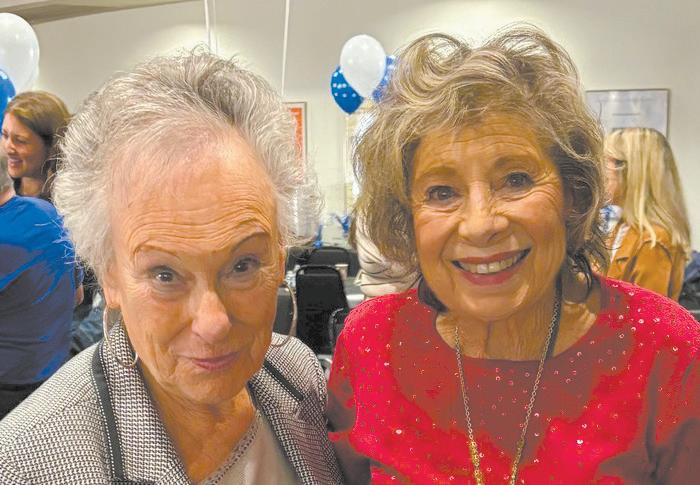


HEADLINES | 6
ARGUMENTS WITH A GHOST
ASU series reflects on Anne Frank and the significance of her memory
Exploring Jewish India, traveling with a Torah and Valley doctor launches new service

SHANNON LEVITT | STAFF WRITER
Afew weeks ago, the Center for Jewish Philanthropy of Greater Phoenix (CJP) CEO Richard Kasper walked into Jewish Free Loan’s (JFL) office with a big smile on his face. He had some very good news to deliver and wanted to do it in person.
Kasper had the pleasure of telling Ellen Friedman Sacks, JFL’s executive director, and her team that their organization would receive CJP’s Belle Latchman Community Service Award at Lighting the Spark, CJP’s 2025 campaign breakfast on Thursday, March 6.
It would be an understatement to say that Sacks and her colleagues were pleasantly surprised.
“It was overwhelming!” Sacks told Jewish News. “I was overtaken with emotion that I wasn’t anticipating.”
“Jewish Free Loan has been doing its remarkable work in our community for generations, so it was a particular pleasure to share the news with Ellie that JFL would be recognized with this year’s Belle Latchman Award,” Kasper told Jewish News in an email.
The award recognizes a local Jewish nonprofit for its contribution to enhancing the quality of life for Greater Phoenix residents. This year, JFL was chosen for its Emergency Loan Program (ELP), designed to assist Jewish individuals and families in Arizona experiencing financial hardship and emergency situations. Under the ELP umbrella, JFL operates interest-free financial assistance programs.
Kasper called the ELP “a living example for translating Jewish values into action.”
“This award recognizes the impact of interest-free lending on our community,” Sacks said. “The only way that we are able to do what we do is
As Donald J. Trump
was being sworn in as president of the United States on Jan. 20, the app developed by the U.S. Customs and Border Protection to help noncitizens travel to the United States went dark, canceling asylum seekers’ appointments at all ports of entry into the country.

Called the CBP One, the free app previously allowed undocumented aliens to submit advance information and schedule appointments at eight Southwest border ports of entry. The process to get an appointment took six to nine months through the app.
“Only 1,450 appointments were allowed each day, at only eight ports, of which there are 26 ports across the U.S. border. And if we were honoring our commitment under international law, you could approach and ask for asylum at all 26 ports, but because of the CBP One program, they’re limited to just these eight, and only through the app,” said Beth Strano, co-founder and executive director at Borderland Resource Initiative, which advocates for humane asylum policies and bolsters support for the dignified reception of asylum seekers.
“Everybody who had an appointment at the Nogales port here in Arizona on Monday morning (Jan. 20), went into their appointments and then were sent to detention and deported,” she added.

David Lawrence, son of Steve Lawrence and Eydie Gormé, performs a tribute to his parents with Tony Award winner Debbie Gravitte. See page 17.


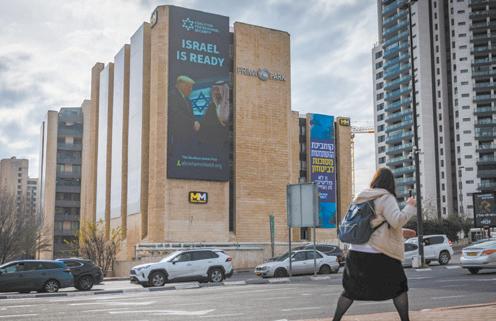

January 6
about her Judaism with her fellow council members and speaking out for her rights
said Jon Meyers, director of ADDPC.
said Jon Meyers, director of ADDPC.
“Our hope is to create and promote opportunities for people to be embraced, become part of the community and find equitable opportunities wherever they might live,” he said.
“Our hope is to create and promote opportunities for people to be embraced, become part of the community and find equitable opportunities wherever they might live,” he said.
Meyers first came to know Stern through her mother, Amy Silverman, who read her personal essays about raising a daughter with Down syndrome on KJZZ, National Public Radio’s Phoenix affiliate
Meyers first came to know Stern through her mother, Amy Silverman, who read her personal essays about raising a daughter with Down syndrome on KJZZ, National Public Radio’s Phoenix affiliate station.
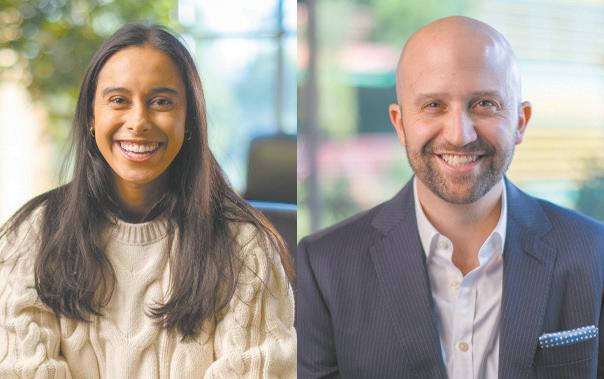
Meyers was so captivated by the essays that he reached out to Silverman, and the two became friends.
Meyers was so captivated by the essays that he reached out to Silverman, and the two became friends.
That’s how Stern first learned of the open council seat, but there’s no doubt she earned her position, Meyers said.
August 25
because of the community, because of our partnership with places like the CJP, with individual donors, with people who entrust us with their stories and what they’re experiencing.”
January 20
January
February 3
January
was tapped as CJP’s first board chair, he’s received many awards. Yet, it always comes as a bit of a shock.
That’s how Stern first learned of the open council seat, but there’s no doubt she earned her position, Meyers said.
September 1
Making the news even more remarkable is the fact that 2025 marks JFL’s 75th anniversary.
February 17
March 10
February 3
February 17
September 8
1
September 15
JFL will be honored alongside three other community members, all of whom merit being uplifted, according to Kasper.
March 24
March 10
March 31
March 24
April 7
March 31
April 21
April 7
May 5
April 21
May 19
October 6
“We couldn’t ask for a more fitting group of honorees. In their own way, each of them embodies the vision of the Center for Jewish Philanthropy, which is to be an engaged, vibrant, and secure community rooted in Jewish values,” he said.
May 5
June 9
May 19
July 14
June 9
August 4
July 14
August 18*
August 4
8
15
6
October 13** October 20
November 3
“I do what I do and am involved with things that I’m involved with because they’re important to me. I don’t do it for the awards,” he told Jewish News.
To become a council member, Stern had to apply and demonstrate that she had something valuable to contribute, he said.
She already has some practice at
about her Judaism with her fellow council members and speaking out for her rights
“One time, I was in class and someone called me the R-word and I told him not to. The teacher was in the hallway and another student repeated the word,” she said. Rather than letting the situation go, she told her theater teacher, who was able
She already has some practice at
“One time, I was in class and someone called me the R-word and I told him not to. The teacher was in the hallway and another student repeated the word,” she said. Rather than letting the situation go, she told her theater teacher, who was able
“If someone has a disability, saying the R-word is like saying the F-word,”
“If someone has a disability, saying the R-word is like saying the F-word,” Stern said.
While performing in the musical “Hairspray,” she had another occasion to tangle with the offensive word, which appears in the script.
his vision and leadership have supported this community for decades,” Kasper said.
While performing in the musical “Hairspray,” she had another occasion to tangle with the offensive word, which appears in the script.
For his part, Silver said he feels a responsibility to help with the work of the community, a job that is never done.
“That’s really bad and my friend said it on stage. I was not OK with that, so I went to the director and told her it was a bad word for people with disabilities, but she wouldn’t take it out,” Stern said.
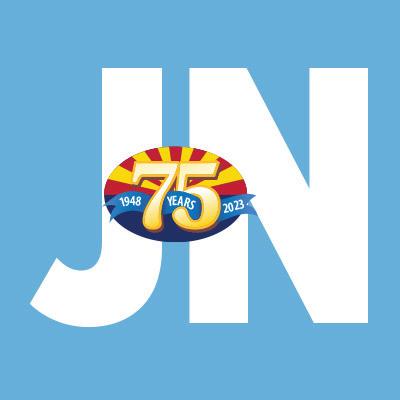

To become a council member, Stern had to apply and demonstrate that she had something valuable to contribute, he said.
“She’s on the council because she deserves to be on the council,” he said.
Being honored makes him a little uncomfortable, he admitted.
Stern is creating a life and career as a member of her community, which makes her a great addition.
“She’s on the council because she deserves to be on the council,” he said. Stern is creating a life and career as a member of her community, which makes her a great addition.
“That’s really bad and my friend said it on stage. I was not OK with that, so I went to the director and told her it was a bad word for people with disabilities, but she wouldn’t take it out,” Stern said.
“There’s always so much more we can do. We always need to get better and build stronger institutions, expand our reach and be more aligned with each other, especially now,” he said.
She let her mother know about the conflict and they were able to convince the director of the need to remove the word from the script.
13** October 20 November 3
November 10
November 17
Bob Silver, a long-time stalwart of Greater Phoenix’s Jewish community, was surprised to discover he was to receive CJP’s Spark Award. Then again, awards always surprise him, he said.
November 10
December 1
November 17
December 15
December 1
As someone who has been intimately and significantly involved in several of the community’s large Jewish organizations, including the Valley of the Sun Jewish Community Center and the Jewish Federation of Greater Phoenix, and who
August 18* August 25
“Every award I have received, I’ve had to be talked into. There are other people who are just as worthy as I am, who do great things for the community. But I’m very honored that others felt that I deserved this award. My reward is doing the work,” he said.
By honoring Silver with its Spark Award, CJP is holding him out as a “trailblazer who goes above and beyond for our community.” In a CJP press release, Silver was hailed as “a role model for others to follow, working tirelessly and selflessly to make our community a better place for all.”
December 15 *Best of Magazine **Annual Directory
Stern graduated from McClintock High School in Tempe last year and now attends Glendale Community College, with a focus on dance. She is a regular performer at Detour Company Theatre, a Scottsdale theatre company for adults with intellectual, developmental and physical disabilities.
Stern graduated from McClintock High School in Tempe last year and now attends Glendale Community College, with a focus on dance. She is a regular performer at Detour Company Theatre, a Scottsdale theatre company for adults with intellectual, developmental and physical disabilities.
CJP will also honor two young Greater Phoenix Jewish community leaders for giving their time and dedication to Jewish causes.
She let her mother know about the conflict and they were able to convince the director of the need to remove the word from the script.
“My friend Al was next to me when I told the director and he gave me the biggest hug ever and said that he loved me so much,” Stern said. Sadly, Al died in a car crash on Oct. 24, 2021.
“Our younger honorees are just getting started in their community careers, but their commitment and engagement is no less meaningful,” Kasper said.
In fact, when Stern attended her first council meeting in January, she couldn’t wait to tell people of her involvement with Detour and share information about its upcoming shows.
“As our founding board chair, Bob’s leadership provided our initial direction as we navigated the complexities of merging two well-established organizations — and everyone who knows Bob understands how
In fact, when Stern attended her first council meeting in January, she couldn’t wait to tell people of her involvement with Detour and share information about its upcoming shows.
Heart Can’t Even Believe It: A Story of Science, Love and Down Syndrome,” Silverman’s book about her daughter. When Gesher’s speakers’ bureau, Damon Brooks & Associates, was asked to find a speaker about Down syndrome for an event this spring, Hummell first asked Silverman to speak, thinking Stern might be too young.
Heart Can’t Even Believe It: A Story of Science, Love and Down Syndrome,” Silverman’s book about her daughter. When Gesher’s speakers’ bureau, Damon Brooks & Associates, was asked to find a speaker about Down syndrome for an event this spring, Hummell first asked Silverman to speak, thinking Stern might be too young.
They decided instead that Stern should tell her own story; it’s a real bonus that she is not afraid of public speaking.
“That was hard; it’s very hard to get emotions out and I was very, very upset,” she said.
“My friend Al was next to me when I told the director and he gave me the biggest hug ever and said that he loved me so much,” Stern said. Sadly, Al died in a car crash on Oct. 24, 2021.
“That was hard; it’s very hard to get emotions out and I was very, very upset,” she said.
BethEl Nager will receive the Lee Amada Award. Like the award’s namesake, Nager has spent her life as a passionate Jewish philanthropist and leader.
“There’s no question that she is going to thrive,” Meyers said. “She’s very gregarious and passionate about the things that matter to her.”
On the recent anniversary of his death, Stern made a cake and took it to the crash site.
On the recent anniversary of his death, Stern made a cake and took it to the crash site.
“I don’t know how I did it without crying. I’m so proud of myself,” she said.
Nager was adopted by her Scottsdale parents from Russia when she was less than one year old. She credits her parents for instilling in her a profound sense of Jewish identity. Rabbi Jeff Kaye of Temple
Stern looks forward to sharing insights
“There’s no question that she is going to thrive,” Meyers said. “She’s very gregarious and passionate about the things that matter to her.”
Stern looks forward to sharing insights
Amy Hummell, executive director of Gesher Disability Resources, agreed that Stern is a good fit for ADDPC because of her ability to self-advocate.
“I don’t know how I did it without crying. I’m so proud of myself,” she said.
Amy Hummell, executive director of Gesher Disability Resources, agreed that Stern is a good fit for ADDPC because of her ability to self-advocate.
Hummell co-hosted a book event with Meyers a few years ago for “My
SEE SPARK, PAGE 4
Hummell co-hosted a book event with Meyers a few years ago for “My
Phone: 602.870.9470 | Fax: 602.870.0426 | editor@jewishaz.com | advertising@jewishaz.com subscriptions@jewishaz.com | www.jewishaz.com
Phone: 602.870.9470 | editor@jewishaz.com | advertising@jewishaz.com subscriptions@jewishaz.com | www.jewishaz.com
PUBLISHER
PUBLISHER
12701 N. Scottsdale Road, Suite 201, Scottsdale, AZ 85254 Phone: 602.870.9470 | Fax: 602.870.0426 | editor@jewishaz.com | advertising@jewishaz.com subscriptions@jewishaz.com | www.jewishaz.com
Jewish Community Foundation of Greater Phoenix
Jewish Community Foundation of Greater Phoenix
PUBLISHER
ADVERTISING SALES CONSULTANT Jodi Lipson | 602.639.5866 jlipson@jewishaz.com
SENIOR ACCOUNT EXECUTIVE Jodi Lipson | 602.639.5866 jlipson@jewishaz.com
GENERAL MANAGER Rich Solomon | 602.639.5861 rsolomon@jewishaz.com
Jewish Community Foundation of Greater Phoenix
GENERAL MANAGER
ASSOCIATE PUBLISHER Rich Solomon | 602.639.5861 rsolomon@jewishaz.com
Rich Solomon | 602.639.5861 rsolomon@jewishaz.com
MANAGING EDITOR Mala Blomquist | 602.639.5855 mblomquist@jewishaz.com
MANAGING EDITOR Mala Blomquist | 602.639.5855 mblomquist@jewishaz.com
STAFF WRITER Shannon Levitt | 602.639.5854 slevitt@jewishaz.com
MANAGING EDITOR Mala Blomquist | 602.639.5855 mblomquist@jewishaz.com
STAFF WRITER Shannon Levitt | 602.639.5854 slevitt@jewishaz.com
STAFF WRITER
Shannon Levitt | 602.639.5854 slevitt@jewishaz.com
ADVERTISING SALES CONSULTANT Jodi Lipson | 602.639.5866 jlipson@jewishaz.com
SUBSCRIPTIONS 602.870.9470 x 1 subscriptions@jewishaz.com
SUBSCRIPTIONS 602.870.9470 x 1 subscriptions@jewishaz.com
SUBSCRIPTIONS 602.870.9470 x 1 subscriptions@jewishaz.com
GRAPHIC DESIGNER Ricki Urban | 602.870.9470 X 2 advertising@jewishaz.com
GRAPHIC DESIGNER Ebony Brown | 410.902.2333 ads_phoenixjn@midatlanticmedia.com
GRAPHIC DESIGNER Ebony Brown | 410.902.2333 ads_phoenixjn@midatlanticmedia.com
“It’s not the same when someone tries to tell a person’s story for them,” Hummell said.
They decided instead that Stern should tell her own story; it’s a real bonus that she is not afraid of public speaking.
“It’s not the same when someone tries to tell a person’s story for them,” Hummell said.
Additionally, helping people with disabilities find jobs was one of the reasons for acquiring the bureau. Unemployment in the disability community is upwards of 75% and of that percentage, 75% are ready, willing and able to work — but haven’t been given the opportunity, Hummell said.
Additionally, helping people with disabilities find jobs was one of the reasons for acquiring the bureau. Unemployment in the disability community is upwards of 75% and of that percentage, 75% are ready, willing and able to work — but haven’t been given the opportunity, Hummell said.
“People have it in them to speak up but don’t know how, and often they’re not cheered on. Sophie has family support
“People have it in them to speak up but don’t know how, and often they’re not cheered on. Sophie has family support

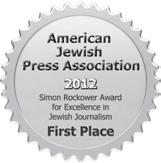

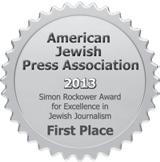

Strano spoke to a group attending a weekend retreat/Shabbaton Jan. 24 through Jan. 26, with events focused on immigrant justice and hosted by Rabbi Dr. Shmuly Yanklowitz, founder of Arizona Jews for Justice (AJJ).
The retreat was in response to the changes happening with immigration.
“Our biggest concerns are the fearmongering and the dehumanizing rhetoric,” said Yanklowitz. “We’re also deeply concerned about the soul of the nation and whether we can maintain an ethos of compassion and an ethic of welcoming the stranger. Most concretely, we want to be sure that some of the most vulnerable people on the planet seeking asylum here have all their basic needs met to survive.”
Tania Silva, a Jewish attorney and founder of The Immigration Force PLLC in Houston, attended the retreat because she “wanted to see what other people are doing around the country to help immigrants.”
Her husband, John Johnson, who also works at Immigration Force, came to see what they could do to “make people’s stress levels go down.”
“We want to see what we can do to have a positive effect on the process people are going through,” added Silva.
Daniel Weber came from Wisconsin because he wanted to understand how to navigate this issue from a Jewish perspective. “How does it compare/contrast with other faiths, and what path do I need to take to get there?” he asked.
Strano shared the history of asylum and how we came to define it as such in the United States. She started with the story of the MS St. Louis and its captain, who took it upon himself to try and get as many Jews as possible out of Germany.
The ship headed to Cuba in 1939 with more than 900 passengers, but only those with dual citizenship were allowed to disembark. So, the captain steered the vessel towards New York. When it arrived, President Franklin D. Roosevelt said the ship was not to touch America’s shore.
“The captain actually considered running the ship aground to force the point to allow people to get access, but ultimately he turned around and went back to Europe,” said Strano.
In the end, all the people on the ship were taken in by five European countries. However, four of those countries became occupied by the Nazis, and 254 of the passengers died in the Holocaust.
In 1951, because of the fate of those on the MS St. Louis and other stories of people seeking refuge from World War II, the Refugee Convention, also known as the Geneva Convention, defined who is a refugee and set forth the rights of people granted asylum.
“The United States didn’t sign until 1967, when they expanded it beyond

refugees from Europe,” said Strano. “I guess we took the approach that people coming from Europe were Europe’s problem, but either way, we eventually signed.”
In the United States, asylum is granted to foreign nationals who have experienced or fear persecution, based on one of five protected grounds: race, religion, nationality, membership in a particular social group and political opinion.
However, no one can apply for asylum unless they are physically present in the country.
“This is true of all the countries in the world that are part of the United Nations and agree to the concept of asylum,” said Strano.
There are also exceptional circumstances, called humanitarian parole or special parole, where the asylum process can be shortened. Some examples are Cuban parole from the 1980s, and more recently, United for Ukraine and Afghan resettlement.
However, as of Jan. 28, the U.S. Citizenship and Immigration Service is pausing all types of parole requests, citing Trump’s Jan. 20 Executive Order, “Securing Our Borders.”
The number of forcibly displaced persons reached unprecedented heights in 2024, and Strano said currently, one out of every 69 people is displaced. These people are forced to leave their homes due to conflict, violence, human rights violations, persecution, disasters and the impact of climate change.
“So, people are being more and more displaced to areas that often are not much safer from where they left, and they are waiting and waiting, or making desperate decisions to get to safety,” said Strano.
She explained that the U.S. receives the most asylum seekers from four main countries: Haiti, Sudan, El Salvador and Honduras.
Haiti
In 2021, Haiti’s “president was assassinated in his sleep, in his bed, in his house, and they have not had a president since,” she said.
The country has had four prime ministers; the most recent left the country for a diplomatic meeting and upon his return,
the gangs that run the country would not let his plane land.
She explained that the U.S. has funded Kenyan forces to go in and try to instill order, but that has not worked.
“It’s a small island and there are no families in Haiti that are untouched by violence,” said Strano. “This is the kind of ever-present existence right now for Haitians, and their government is clearly inoperable.”
Sudan
Strano explained that there’s a twoyear civil war between the two major rival factions of the military government in Sudan. There are also smaller groups that have begun enacting violence on each other.
But the bigger issue, and the reason that right now the United Nations considers Sudan the worst humanitarian crisis in the world, is that 25.6 million people are living in famine. “Part of the reason is that these warring factions across the country are attacking the humanitarian aid groups and stealing the resources,” she said.
She added that there’s always a balance with humanitarian aid, and it’s often “the cost of business” that some of the aid goes to the people you don’t want it to, but in this case, it is not getting to anyone.
El Salvador
El Salvador’s leader, Nayib Bukele, calls himself “the world’s coolest dictator.” Strano explained that he has convinced his country that violence is down by encouraging the gangs to kidnap people and murder them in private, instead of in the public eye.
Bukele also controls the media, and anyone trying to protest or report against him is being sent to prison.
Honduras
Next door to El Salvador, Honduras recently elected the first Indigenous woman to be president, Xiomara Castro.
Strano said that everyone thought she would be a change from the long history of death squads, political repression and dictators, but they are still number three in the world for the highest murder rate.



CONTINUED FROM PAGE 3
Their laws also do not protect women.
“You are very unlikely to be prosecuted if you murder a woman in Honduras. And if you are, your sentence will likely be six months or less,” she said. “One woman was murdered every 22 hours in Honduras in 2023, and this is not a big country.”
She said that given the conditions in these four countries, it’s understandable why someone would want to leave, especially if they have children they are trying to protect.
As of Jan. 20, approximately 270,000 migrants are waiting on the Mexican side of the U.S.-Mexico border, hoping to somehow get into the U.S. She explained the treacherous journey many of these migrants took to get as far as the border. Strano also showed a map filled with red dots, each representing where a body was found. This pass through the desert is called El Camino del Diablo, the Devil’s Highway.
She shared a story of a mom sleeping in a cemetery with her children because there were not enough shelter beds at the border. She would tie a shoelace from each child to one of her shoes, so if someone tried to grab them in the night, she’d wake up.
Strano said that incidents of kidnapping by the drug cartels in border towns are escalating because they think the migrants have families in the U.S. who will pay ransom.
“If your family pays the full ransom, or enough of the ransom, you’re given a password so that the next person who tries to kidnap you, knows that you already got kidnapped and doesn’t kidnap you a second time because that’s how often it’s happening,” she said.
She said that in addition to CBP One, many of the programs to gain asylum have now been cut, or are paused, and she doesn’t know which ones will remain, but there are still ways for people to become involved through volunteering and education.
“We get a lot of misinformation. Educate your friends and loved ones about asylum,” she said. “The more we personally get involved, the more this becomes a swelling of resistance, a swelling of defense for the idea of protection, of asylum and of safety from the violence these folks are fleeing.” JN
For more information on Arizona Jews for Justice, visit arizonajewsforjustice.org; for Borderland Resource Initiative, visit borderlandsinitiative.org.


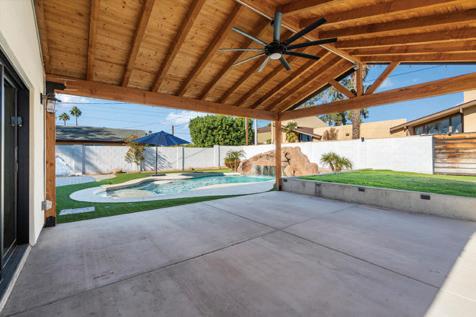
Step into luxury with this stunning, fully renovated 3-bedroom, 2-bath home –designed for those who love to entertain in style. Nestled in one of the most desirable neighborhoods, this gem offers easy access to the best of Phoenix, including top dining, shopping, and entertainment.
The gourmet kitchen is a showstopper, featuring a spacious island with seating and storage and top-of-the-line Café appliances. The open-concept living area is an entertainer’s delight, seamlessly flowing to the outdoors and enhanced by a state-of-the-art SONOS sound system inside and out.
Step into the resort-style backyard, where every detail is designed for enjoyment:
• Sparkling pool with a waterfall grotto & slide
• 3-hole putting green for golf lovers

• Extended patio with a Commercial Grade misting system & ceiling fan for year-round comfort
With its unbeatable location and incredible amenities, this rare find won’t last long! Schedule your private showing today!
Offered at $709,000
Monica Dieker
(c) 602-626-0767
Estrella Realty Group


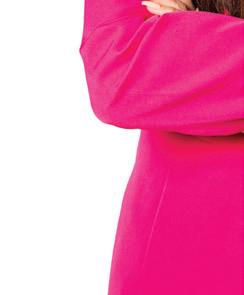
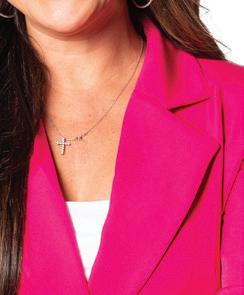

SPARK
CONTINUED FROM PAGE 2
Chai, the family’s rabbi at the time, was involved in Nager’s adoption and became her godfather.
“Because of how I was raised, I internalized this way of life. I never knew any other way,” she told Jewish News.
She likes working with CJP because its broad outreach to the community allows her to focus on various facets of her identity. Thus, she especially enjoys working with Jewish women and young Jewish professionals.
Nager was honored to learn of the award, but it might not have come as a complete surprise.
“I remember sitting with a friend last January and talking about ‘Spark,’ and she said, ‘You’ll get one of these awards one day’ and I laughed. Now, here we are a year later,” she chuckled.
Harrison Abramowitz, a relative newcomer to Arizona, will receive the Sy Clark Award. He moved to the Valley from New York just as Seymour Clark, for whom the award is named, did as a young man.
While Abramowitz has thrown himself into a number of Jewish causes since his arrival, it’s somewhat of a new experience for him. Living in New York, he didn’t feel the need to be as heavily involved.
“In New York, you just are Jewish, but in Arizona, you have to work at being Jewish because it’s not omnipresent,” he told Jewish News.
Regardless of where he lives, his Jewish identity is deeply ingrained, he said. At least in part because of the Holocaust survivors in the family.
“My grandparents made it a point that this is my history. It would be foolish not to stand up and be a young leader — given what my grandparents went through,” he said.
Abramowitz’s favorite thing is fostering relationships, especially with other young Jewish transplants.
“I have my sea legs now, but this is a high growth market and I love being part of the welcoming committee for other young Jewish professionals,” he said.

“BethEl and Harrison are role models and inspirations for a new generation of leaders that will sustain Jewish life in Greater Phoenix for decades to come,” Kasper said.
Since he landed in the desert four years ago, Abramowitz has also become involved on a national level as a member of Jewish Federation of North America’s (JFNA) National Young Leadership Cabinet. Fellow Cabinet member and founder of Mo News, Mosheh Oinounou, will speak at the March award ceremony.
Aside from his own experience as a reporter and executive producer at news outlets such as CBS, Fox News, Bloomberg TV and CNBC, Oinounou said he’s learned a great deal from his time in JFNA’s Cabinet.
“It has given me perspective on the challenges faced globally by Jews, as well as an incredible opportunity to network with a smart group of Jewish leaders from around the country,” he told Jewish News. As a media professional, Oinounou plans to address the state of the media in terms of its coverage of issues like Israel and antisemitism, but he’s also hoping to hear from attendees how they’re interacting with the news.
“I’m hoping to bring clarity to folks in terms of why they’re seeing the news covered the way it is, especially in light of things like antisemitism,” he said. JN


The Jewish community in the Valley is a small but cohesive one, Abramowitz said. He appreciates that cohesion.
“It’s a wonderful place to be Jewish. We have a lot to offer folks who are moving to the Valley looking for a meaningful Jewish community,” he said.
For more information, visit phoenixcjp.regfox. com/2025-spark.
Jewish News is published by the Jewish Community Foundation of Greater Phoenix, a component of the Center for Jewish Philanthropy of Greater Phoenix.
“THERE’S ALWAYS SO MUCH MORE WE CAN DO. WE ALWAYS NEED TO GET BETTER AND BUILD STRONGER INSTITUTIONS, EXPAND OUR REACH AND BE MORE ALIGNED WITH EACH OTHER, ESPECIALLY NOW.”
BOB SILVER
SHANNON LEVITT | STAFF WRITER
The year is 1956. After the arrival of a mysterious seamstress in an Israeli neighborhood full of Holocaust survivors, unsavory rumors surface about her past as a possible Nazi collaborator. Drama unfolds when one of the neighbors, a former resistance fighter, attempts to uncover the truth about the newcomer even as he develops romantic feelings for her.
So begins “Soda,” the 2024 Israeli film that will have its Arizona premiere on Thursday, Feb. 13, at the Scottsdale Center for the Performing Arts for the opening night of the 29th annual Greater Phoenix Jewish Film Festival (GPJFF).
In celebration of the festival’s opening, Erez Tadmor, the film’s director, and Lior Raz and Rotem Sela, two of its stars, will be on site for a talkback following the film. Tadmor, an Israeli director and screenwriter, has directed past GPJFF favorites such as “A Matter of Size,” “Matchmaking” and “Golda” starring Helen Mirren. Raz is an Israeli actor, writer and producer, best known for co-creating and starring in “Fauda,” the Israeli television series about the Israeli-Palestinian conflict that has gained an American audience. Sela is an Israeli actress, model and television host.
The presence of the three Israeli stars is likely one reason that the event sold out almost immediately. The waitlist for tickets is already growing.
“Every film in the festival has already sold some tickets, after only being available for two days,” Sue Adatto, the festival’s co-executive director, told Jewish News.
Adatto expects overall attendance to be at least 10% above last year, which was the best year so far for the festival.
“We’re striving to sell 12,000 tickets, or more, this year,” she said.
“We’re growing every year,” agreed Tali Brosh, GPJFF’s assistant executive director.
This year’s festival runs Feb. 13 to March 2 and, as is the case every year, it aims to offer a wide variety of Jewish films, including comedies, dramas, documentaries and short films that appeal to the Greater Phoenix Jewish audience.
Each year, organizers look over more than 100 films before making the schedule, a process that begins almost immediately after the close of the preceding year’s festival. Smaller screening committees then view dozens of finalists, whittling the list down to a slate of feature-length films that best represent the GPJFF’s mission of showcasing Jewish life, culture and history from around the world.
This year, after viewing 130 films to start, GPJFF selected 28 features, seven more than last year.
“We had to make room for a few more this year,” Adatto said. “When we put together our final schedule there were so many good films that we had to cut. I haven’t seen a year this good.”
Additionally, there are 18 short films on the schedule. On Wednesday, Feb. 26, eight of the shorts will be shown together in a program the festival has titled “Family Oys and Joys.”
“It’s going to be really fun,” Adatto said.
The other 10 shorts will be paired with a featured film. All films will be shown at one of three Harkins Theatres: Scottsdale’s Shea 14, Chandler Fashion 20 and/or Arrowhead 18 in Peoria.
Both Adatto and Brosh are excited about this year’s lineup and avoid choosing favorites.
Still, comedy entries are always popular for festival goers and they expect that this year will likely be no different.
When pressed, Brosh pointed to “Bad Shabbos” as one film she’s looking forward to. The comedy tells the story of an interfaith couple who experiences a Shabbat family dinner wherein everything that can go wrong, does go wrong.
“It’s a gripping comedy about how things can go so bad. Prepare for lots of laughs,” she said.
“Dramas also get a good crowd,” Adatto said, pointing to the success of last year’s dramatic film “Seven Blessings.”




is the opening film for the 29th annual Greater Phoenix Jewish Film Festival. SCREENSHOT

One of the biggest ticket sellers, so far, is the biopic “Midas Man,” which tells the story of Brian Epstein. He was a Jewish record store owner and music entrepreneur who helped the Beatles and other groups to international success.
“I absolutely love ‘Midas Man,’” said Brosh. “It shows the complexities of his personal life and beautifully captures the spirit of the 1960s in the United Kingdom.”
Documentaries this year include stories of Jewish cultural figures, the Holocaust and Oct. 7.
Adatto highlighted “Song of Ascent,” which follows Jewish singer/songwriter
Matisyahu as he meets survivors of Hamas’ Oct. 7 attack.
“It really touched me the way he talks with victims of that tragic event that still isn’t over,” she said.
Shlomo Weprin, the documentary’s director, will attend a talkback on Thursday Feb. 27.
“I really want everyone to enjoy our captivating films and the whole experience,” Brosh said.
“We look forward to seeing everyone at the movies,” Adatto said. JN
For more information, visit gpjff.org.





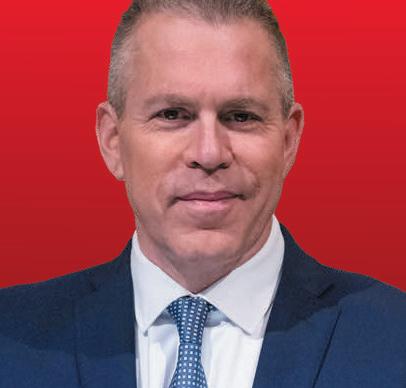










SHANNON LEVITT | STAFF WRITER
Anne Frank, the young diarist who hid from the Nazis in an Amsterdam attic with her family and died in BergenBelsen concentration camp of typhus fever, is one of the most well-known Jews in history. Her diary, discovered after she was found and imprisoned, has been translated into 70 languages and sold over 35 million copies. It is still regularly taught in schools in the United States and other countries.
Yet, much of Frank’s renown came from the stage adaptation of her diary in 1955. The fact that the Pulitzer-winning play focused more on universal themes of adolescent love, hope and a belief in the goodness of people and excluded Frank’s more pessimistic views and observations on antisemitism, has long been a bone of contention for many Jews, even as they flock to the theater joining non-Jews in packed audiences around the world.
Upon the staging of yet another Broadway production in 1997, the Jewish writer Cynthia Ozick asked an important,

and potentially explosive, question in the New Yorker: “Who owns Anne Frank?”
Ozick’s essay exploring that provocative query was the jumping off point for a “new experiment” in programming from Arizona State University’s Jewish Studies, which hosted the first of three virtual sessions entitled “Arguments with a Ghost” on Wednesday, Jan. 22.
Jewish Studies Director Hava TiroshSamuelson explained that the series is a way to engage the audience with more than a professorial presentation. Viewers were given reading assignments and the presenter led a discussion on the reading after prompting them with his own insights.
Brian Goodman, an ASU assistant professor in the English department and expert on American Jewish literature, “conceived the series,” according to Tirosh-Samuelson. Goodman selected three American literary works, all reflecting on Anne Frank and the significance of her memory.
Ozick’s take was first up in the series. In her essay, the outspoken writer states in no uncertain terms that Frank’s diary “has been bowdlerized, distorted, transmuted, traduced, reduced; it has been infantilized, Americanized, homogenized, sentimentalized; falsified, kitschified and, in fact, blatantly and arrogantly denied.”
She praises Frank’s bold and honest writing, even saying that she has every confidence that if Frank hadn’t died she would have gone on to have an illustrious writing career. She focuses on the dark notes of the diary, of which there are many, and points to the young writer’s facility with conveying the daily terrors of her life confined with a few other people, always knowing that death could arrive at any moment.
On the other hand, she is unflinching in her scorn for the diary’s “falsifiers,” including “dramatists and directors, translators and litigators, Anne Frank’s own father and even — or especially — the public, both readers and theatregoers, all over the world.”
Frank was only 15 when she died. Her father, Otto Frank, published the diary three years later after removing sections where she wrote about sexuality and criticisms of her mother. Those pages were restored decades later. Ozick criticizes Otto Frank for this bowdlerization, but she is much more scornful that he presented his daughter to the world as a happy and idealistic girl, which he felt would be more acceptable and easier to identify with for the non-Jewish world.

Ozick accuses him, and all those who helped him sell that image and everyone who swallowed that interpretation, of turning a work of truth “into an instrument of partial truth, surrogate truth or anti-truth. The pure has been made impure — sometimes in the name of the reverse. Almost every hand that has approached the diary with the wellmeaning intention of publicizing it has contributed to the subversion of history.”
Before opening up a discussion of Ozick’s critiques, Goodman gave some background on the novelist and essayist, including her own grappling with her Jewish and American identities. She wrote about the Holocaust in her fiction and she “stated things directly,” Goodman said. She was a contemporary of Susan Sontag and Norman Mailer and, as her essay makes clear, she didn’t shy away from tough topics.
Several people tuning into the virtual session enjoyed reading her essay but were taken aback by some of her more controversial statements. Even Goodman admitted that he was floored by her final statement in the essay in which she suggests that it might have been “salvational” if, rather than having Frank’s diary been stripped of its darkness to make it more
relatable, it might have been “burned, vanished, lost — saved from a world that made of it all things, some of them true, while floating lightly over the heavier truth of named and inhabited evil.”
“That line still takes my breath away,” Goodman said.
While people seemed to feel more comfortable keeping their insights to the comment section on Zoom, by the end, a few people offered some thoughts by unmuting themselves. Goodman hopes that by the next session, people will come completely out of their shells and his voice will be only one among many.
The next session is Wednesday, Feb. 26, and the reading assignment is Philip Roth’s novel “The Ghost Writer.” Goodman believes it’s Roth’s best novel, but more importantly, it tackles the memory of Anne Frank in the most idiosyncratic way.
The third and final session is Wednesday, March 26, and that night’s reading will be Nathan Englander’s short story, “What We Talk About When We Talk About Anne Frank.” JN
For more information, visit jewishstudies.asu. edu/PublicPrograms.
SHANNON LEVITT | STAFF WRITER
Dr. Nadav Davidovitch, an Israeli public health physician, epidemiologist and the chair of Israel’s Association of Public Health Physicians, has a long-term collaboration with Arizona State University (ASU), primarily in the realm of public health, health policy, health inequalities and climate change.
On Monday, Feb. 3, Davidovitch joined ASU Interim Dean of the College of Health Solutions Professor Michael Yudell for a public discussion about polio, food security and future-focused solutions for global health. The public event, “Israel and the Way Forward: Public Health Lessons from Wartime,” took place at Temple Solel in Paradise Valley and was sponsored by Americans for Ben-Gurion University’s Phoenix Chapter.
Davidovitch, a professor in Ben-Gurion University’s Department of Health Policy and Management, serves on the Israeli National Health Council as chair of health economics and policy where various health reforms, including following the current Gaza war, are implemented, points he expanded on during the presentation.
He worries that the current retreat from the World Health Organization of the U.S., led by President Donald Trump, “is a dangerous move” and an ironic one given the country’s role in the 1948 founding of the organization.
In terms of growing vaccine hesitancy, Davidovitch spoke based on his own experience as part of the U.S. Government Initiative for Global Vaccine Access or Global VAX. He pointed “to the growing place of fake news,” especially its rise after COVID-19 struck in 2020.
It is not as big an issue as in the U.S. as it is a growing problem in Israel, however, because “of the historical emphasis in Israel on solidarity and the importance of public health and the public health care system (supported both by the political right and left),” he told Jewish News in an email.
As chair of the Public Health Emergencies Task Force of the Associations of Schools of Public Health in the European Region, Davidovitch is engaged daily with many initiatives, including vaccination policies, health inequities and health data and knowledge transfer.
Davidovitch corresponded briefly with Jewish News via email before his February talk about some of these issues and advice for ASU, based on his experience advising the Israeli government during the COVID-19 pandemic.
Davidovitch said there are several valuable lessons that can be shared with an

institution like ASU, especially given the importance of multidisciplinary collaboration.
For example, he credits Israel’s success in vaccination campaigns and pandemic response to its data-driven approach. He said it is critical for institutions such as ASU to develop robust data collection and analysis systems to inform policy decisions.
Communication and community engagement were also crucial in Israel’s pandemic response, he said. Davidovitch advises a comprehensive approach to communicating health risks via social media, television, radio and other online outlets. He added that transparency and availability of information will build trust with students, faculty and staff.
Just as Israel relied heavily on community support during the pandemic, ASU should develop methods to build community solidarity and trust by engaging students and faculty in its health promotion initiatives, he suggested.
“There is a great need to promote trust, not just with the public, but also within the professional community, including between countries, within regions (as diseases know no borders) and on an international level,” he said.
Also key is adapting systems quickly and being flexible when health situations change. Thus, he suggested that ASU develop comprehensive emergency preparedness plans for different health scenarios, and then regularly update and test them for readiness.
“Looking back, the most important lessons for infectious disease experts are the need for more multi- and inter-sector collaborations; this must be ensured by structural changes, with incentives for all stakeholders,” he said. JN
"THERE IS A GREAT NEED TO PROMOTE TRUST, NOT JUST WITH THE PUBLIC, BUT ALSO WITHIN THE PROFESSIONAL COMMUNITY, INCLUDING BETWEEN COUNTRIES, WITHIN REGIONS (AS DISEASES KNOW NO BORDERS) AND ON AN INTERNATIONAL LEVEL."
DR. NADAV DAVIDOVITCH
Are you happy with your current landscaper?
We are in your neighborhood and have room in our schedule for you. We have been designing, building and maintaining yards in the Valley for 30 years.

602-770-2323
www.coconutcontracting.com
13608 N Cave Creek Rd. Phoenix, AZ 85022 ROC: 293769, 302509


Beth Ami Temple
Invites you to join us at 7:00 PM, Friday, Feb. 21, 2025 for Shabbat Services with our

Guest Speaker on Edward Steichen “Father of Modern Art Photography” Presidential Medal of Freedom Recipient
Services held in the Unitarian Universalist Congregation 4027 E. Lincoln Dr. Paradise Valley, AZ 85253
For information: www.bethamitemple.org 602-956-0805



PARSHAH BESHALACH:
EXODUS 13:17 - 17:16
Life today feels overwhelming. Rising antisemitism, the war in Israel and personal struggles weigh on our hearts. How are we meant to respond? Do we fight back? Do we retreat? Do we pray?
This question is not new. At the edge of the Red Sea, trapped between the water and Pharaoh’s army, our ancestors faced an impossible situation. According to the Midrash, they split into four groups, each with a different reaction.
One group said, “Let’s throw ourselves into the sea.” Overcome with fear, they saw no way forward and wanted to give up.
The second group said, “Let’s go back to Egypt.” Better to return to slavery than face the unknown.
The third group argued, “Let’s fight.” If they were going to die, they would go down fighting.
And the fourth group said, “Let’s pray.” This was beyond them — only G-d could help.
OPINION
15 - 6:50 P.M. RABBI
Each of these reactions feels familiar today. Some Jews, seeing the rise in antisemitism, want to shrink back, hoping to stay unnoticed. Others believe we need to blend in more, not draw attention to our Jewishness. Some are ready to fight, to take on the world with full force. And others turn entirely to prayer, believing only G-d can save us.
But G-d had a different response. Moshe tells the people: “Why do you cry out to Me? Tell the children of Israel to move forward.”
Moving forward seemed impossible — there was a sea in front of them! But this is what G-d wanted from them, and it’s what He wants from us today. Not to run away. Not to surrender. Not to fight blindly. Not to only pray. But to step forward with faithbased action.
There’s a difference between blind faith and faith-based action. Blind faith is standing still and expecting a miracle. Faith-based action means stepping forward, even when you don’t see the full path ahead. It’s taking action with the belief that Hashem (G-d) is guiding the way.
Yes, the world feels uncertain. But history has shown that the Jewish response to hardship is not to stop, it’s to build. When we feel afraid, we must be prouder of our
Jewish identity. When hatred rises, we must increase in love. When we feel powerless, we must take action.
Lighting Shabbat candles, putting on tefillin, giving tzedakah — these acts strengthen our people and shape our future. This isn’t just an idea; it’s our history. We are still here because, in every generation, Jews moved forward in faith, even when it seemed impossible.
Over the past year, which path have you taken? Have you withdrawn, hoping to stay unnoticed? Have you tried to fight every battle, exhausting yourself? Have you stood still, waiting for things to change? Has your approach brought you the strength and peace you were looking for?
If not, maybe it’s time for a new path. Maybe it’s time to move forward, not by ignoring the challenges but by facing them with faith-driven action. Strengthen your Jewish identity. Show up for your community. Do another mitzvah, give a little more tzedakah, bring light into a dark world.
At the Red Sea, the waters didn’t split first. Nachshon had to step in. He didn’t wait for the path to be clear — he moved forward, and the miracle followed. And when the sea split, it wasn’t just an escape, it was a moment of clarity. Suddenly, the people
saw what had been true all along, Hashem was with them.
We all have a sea in front of us, something that feels too big to overcome. A challenge that seems impossible, a fear that holds us back. But the question is: What step do you need to take to see the sea split for you? What is one action you can take today to move forward with faith?
Because when you take that step, you won’t just find a path, you’ll see G-d walking with you. You’ll feel His presence in the strength you didn’t know you had, in the unexpected help that comes just when you need it, in the moments of clarity that remind you that you’re never alone.
The sea didn’t split because the way was clear. It split because someone had the faith to step forward. Maybe it’s time to take that step. Because when you do, you won’t just find Hashem, you’ll see Him splitting your very own sea. JN
Rabbi Moshe Levertov directs the Jewish Care Network in Phoenix.
LORI SHEPHERD | ARIZONA MIRROR
On Jan. 27, the world commemorated the 80th anniversary of the liberation of Auschwitz, perhaps the most notorious of Nazi concentration and extermination camps. For many, Auschwitz is a symbol of the absolute horror of the Holocaust and attendant atrocities of World War II. By the time Soviet troops marched in to liberate 7,000 sick, injured and malnourished prisoners, the Nazis had already murdered more than 1.1 million people in this camp alone. The victims — mostly Jews from across Europe, but also political opponents, prisoners of war, homosexuals and Roma — were killed in gas chambers or by systematic starvation, forced labor, disease and medical experiments.
In 2005, the United Nations General Assembly designated Jan. 27, the anniversary of the liberation of AuschwitzBirkenau, as International Holocaust Remembrance Day, a time to remember
all victims of Nazi persecution. This commemoration acknowledges what we have long known: that by preserving the memory of the Holocaust, we ensure that future generations are educated about the dangers and consequences of unchecked hatred.
This work has never been more important.
Since 2016, the United States has seen a steady rise in reported incidents of antisemitism and identity-based hate. In the months following the Oct. 7, 2023, terror attacks on Israel, the ADL reported a 360% increase in antisemitism and antisemitic acts. In Arizona, this hatred has played out on our college campuses, online and in our communities.
And so the fight against hate continues. The battle is not yet won. Our post-WWII promise of never again has not yet been fulfilled.
Today, dignitaries, heads of state and aging survivors gathered around the world to mark this anniversary that fewer and fewer
We are a diverse community. The views expressed in these opinion pieces do not
Philanthropy, Jewish Federation of Greater Phoenix, Cleveland Jewish Publication Company or the
living people remember. As younger generations try to understand the unfathomable weight of this day, I believe that Holocaust education is not merely a history lesson: It’s a morality lesson. Most importantly, it’s a contemporary call to action.
As we came together to commemorate this auspicious anniversary and honor the millions of people who perished — Jews and non-Jews — we must double down on our commitment to building a world where tolerance, diversity and respect will triumph over exclusion, bigotry and hatred. And while this annual commemoration is important, it’s insufficient. The fight against hate, the fight to change a hate-filled world, must happen every day, in every place. Twenty-four hours a day, seven days a week, 365 days a year.
We must work in our classrooms, our workplaces, our homes and our places of worship to educate and enlighten on the
dangers of unchecked hate. We must demand systemic social change with our voices, our votes and even with our pocketbooks.
We must work together to deliver thoughtful, engaging and historically accurate lessons that tackle antisemitism and other identitybased biases that persist in our schools and communities.
We can only build stronger, safer and more resilient communities by working in collaboration with local allies and partners, calling out hatred and discrimination in all forms, wherever we see it.
One day is not enough. We must heed the call to action. What will we do the other 364 days of the year, and what will we ask of our leaders, our neighbors and our communities, to keep the sacred promise of never again? JN
Lori Shepherd serves as executive director of the Tucson Jewish Museum & Holocaust Center. This opinion piece originally appeared in the Arizona Mirror.
and should be a maximum of 200 words. They may be edited for space and clarity. Unsigned letters will not be published. Letters and op-ed submissions should be sent to editor@jewishaz.com


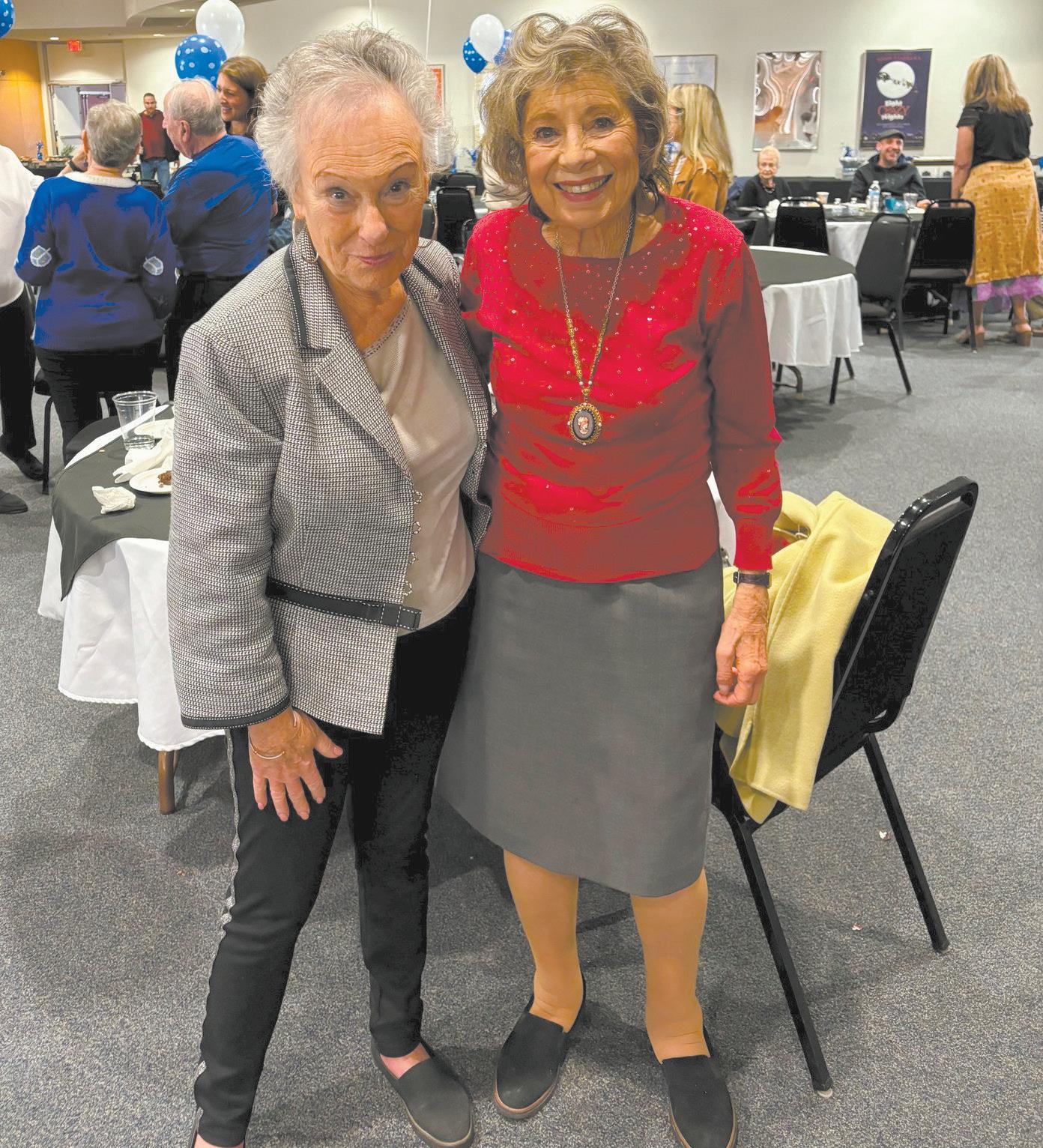
Announcing more of a good thing. Now available for reservation. Schedule your appointment for a virtual tour of our stunning new residences.
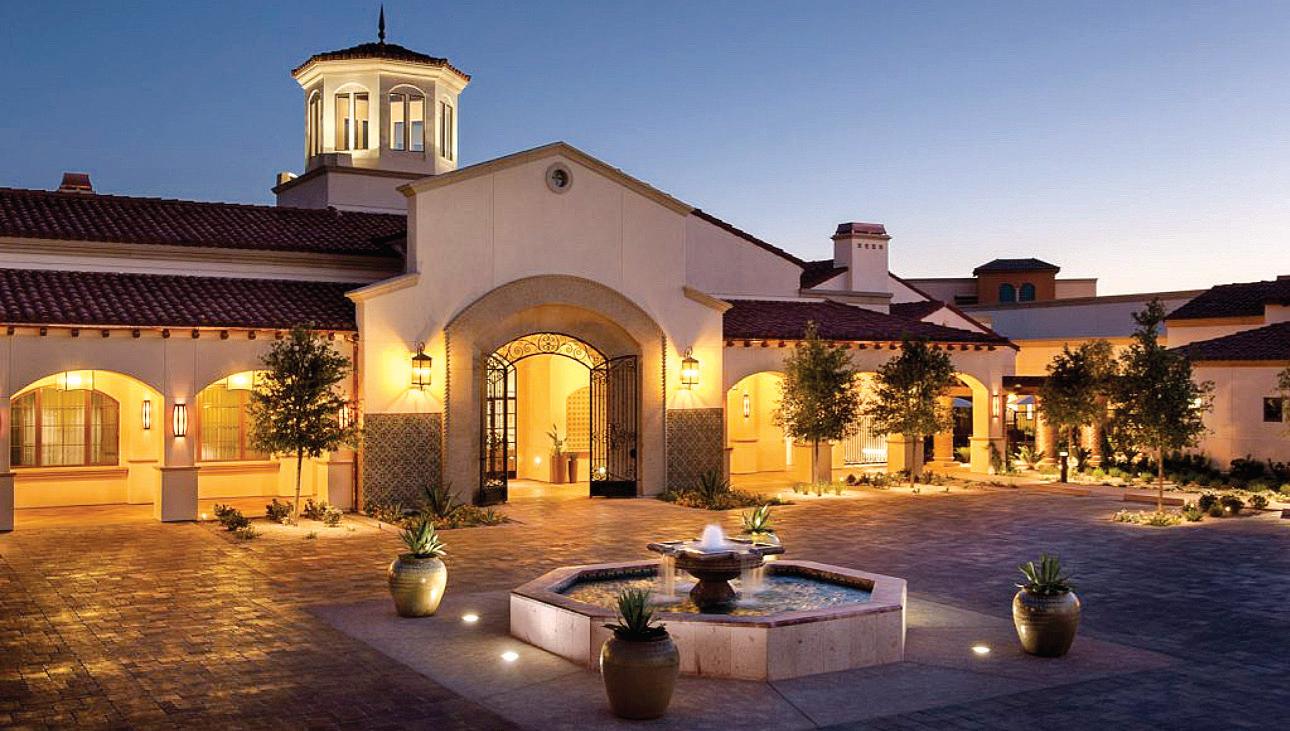

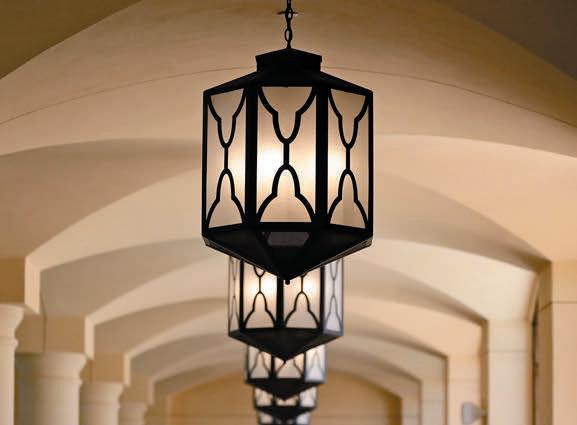

Sumptuous southwestern ambiance, impeccable decor, and impressive amenities including elegant indoor pool and full-service spa. Epicurean cuisine, incomparable residences and exceptional service. Adjacent to TPC Scottsdale. Retirement living, reinvigorated.
New residences now available for reservation. Call to schedule your tour. 7325 E. Princess Blvd. Scottsdale, Arizona 85255



SHANNON LEVITT | STAFF WRITER
Seeing a huge elephant with a Magen David painted on its head in India might surprise, even delight, a Jewish visitor to the country. However, the six-pointed, entwined triangle symbol doesn’t mean the same thing to everyone looking at it in the world’s most populous nation.
“There are what look like Magen Davids all over India, on monuments, on the backs of taxis and even on elephants, and that definitely helped us to feel at home. But, in fact, it’s like a good luck sign across India,” Rahel Musleah told a sizable crowd at Scottsdale’s Congregation Or Tzion on Sunday afternoon.
Born in India, Musleah now leads Jewish tour groups through a few of India’s cities, where historic, but dwindling, Jewish communities still survive. She spoke in Scottsdale on Sunday, Jan. 12, as part of the Bureau of Jewish Education of Greater Phoenix’s (BJE) 2025 Passages series.
Musleah showed old family photos whose roots she can trace back to 1820 Calcutta, now Kolkata, where she was also born as part of the Baghdadi Jewish
community — Jews originally from Baghdad, Iraq and various parts of the Middle East, who arrived in India in the late 18th century.
Musleah’s father was the rabbi of her community. Yet, the fact that many Jewish Indians decided to make aliyah in the 1950s and ‘60s, as well as depart to other countries following the British partition of India and Pakistan in 1947, left an uncertain future and a reduced number of congregants. With little choice, he took an offer from a synagogue in Philadelphia. In 1964, he and the family boarded a ship to the United States, and Musleah didn’t return to India until 1997.
Though she didn’t get to grow up in India, she said that Philadelphia had a little oasis of Indian Baghdadi Jewish traditions. “We maintained all our customs for Shabbat holidays, Pesach, Rosh Hashanah, all the songs and everything around the table were what my father taught us from Calcutta.”
She never lost her connection to India, even while she built a multi-faceted career as a journalist, author, singer, storyteller and educator. Eventually, she

would create a partnership with a Jewish Indian living in Mumbai and lead Jewish heritage tours to India every November and February.
“On every trip, I discover another dimension of India’s richness, beauty

Announcing
Announcing
and vibrant culture,” she told the
She showed an intricate
of synagogues in Delhi, Kochi (Cochin), Kalkota and Mumbai (Bombay), all of which had very different architectural
SEE INDIA, PAGE B4
SRG Senior Living announced the final phase of Maravilla Scottsdale is currently under construction with 47 new casitas and 115 new lodge homes, available for reservation now. Each home is meticulously designed to cater to residents who seek elegance and comfort in a vibrant, active community.
Maravilla Scottsdale is more than just a place to live — it's a lifestyle. The community features an impressive array of amenities that make every day feel like a getaway. Residents enjoy the grand clubhouse, a central hub of activity and relaxation, complete with an indoor pool and resort-style locker rooms. Maravilla Scottsdale offers exceptional dining at the elegant Ironwood Grill and the casual Café del Sol. A new restaurant called Fore with expansive views of the TPC golf course will debut in 2025. Residents of Maravilla Scottsdale indulge in pampering at the full-service Sage & Citrus Spa or stay active with a variety of fitness classes, putting greens and other amenities coming soon.
New casitas and lodge homes are perfect for those looking to embrace luxury living, some with stunning views of the TPC golf course. The casitas are set for completion in early 2025, and lodge homes, featuring expansive views and refined finishes, will follow.
Through the final expansion of Maravilla Scottsdale, the community looks forward to furthering its commitment to delivering truly exceptional, life enriching experiences. With its spectacular design and location, innovative amenities and dedication to resident well-being, Maravilla Scottsdale is the pinnacle of quality community living.
Maravilla Scottsdale, a retirement resort community nestled between the Champions Golf Course at TPC Scottsdale and the world-renowned Fairmont Scottsdale Princess, is expanding to offer even more high-end services and amenities.
CONTINUED FROM PAGE B3
designs. Some were more Eastern, some more Western and one even had a tall steeple, attached by its British Christian designer. Amid more slides, she surprised the crowd with a neighborhood called “Jew Street” in Kochi.
“To our ears, it might sound antisemitic or racist, but in Cochin it is an emblem of autonomy, the proud label of a Jewish community that, for centuries, lived in peace and harmony with its Hindu neighbors,” she explained.
Musleah said there is some debate about where the city’s Jews originated. One tradition claims that Jews arrived in the time of King Solomon as traders in gold, ivory and spices. Another says the first Jews arrived in the first century, after the destruction of the Second Temple. In the 16th century, some Jews arrived after escaping the Spanish Inquisition and were welcomed by the Maharaja and granted a large piece of land adjoining his palace.
One point she made a few times was that “there was never any indigenous antisemitism in any of our communities. We lived alongside our Hindu and Muslim neighbors in harmony and freedom. We were never afraid in India to practice and observe our Judaism.”
In some cities, Muslims hold weddings in synagogues to bring good luck.

In Kochi, whose Jewish population has nearly all emigrated, Muslim shopkeepers put the word “Shalom” in the name, to entice Jewish tourists.
This is actually the second time Musleah has participated in Passages. The last time was in 2018.
“She really gives a good presentation. People enjoyed it and gave us a lot of good feedback,” BJE Executive Director
Myra Shindler told Jewish News. About 100 people came in person, some of whom are preparing to go to India. More tuned in virtually.
When Musleah asked if anyone in the audience had visited any of these places, a surprising number of people had.
Susan Effron has taken two trips to India, one in the north and one in the south.
“I had the privilege of being in most of those synagogues, and I just loved her presentation because it brought back the memories,” Effron told Jewish News.
Sadly, Jewish India is now mostly honored in name only. Where there were once upwards of 50,000 Jews, today the number is close to 3,700. Still, a lot of the structures of the communities remain and are kept up diligently by those left.
That’s one reason Mark Glazer wanted to hear what Musleah had to say. He has visited synagogues in Delhi and feels that the dropping numbers “makes it more


important to talk about the past.”
He appreciated that Musleah highlighted India’s tolerance of religious diversity, and specifically Jews.
“It’s very important for Jews and nonJews to be educated about the worldwide tolerance of Jewish people, specifically in India,” he told Jewish News. JN
To learn more about exploring Jewish India, visit exploreJewishIndia.com.

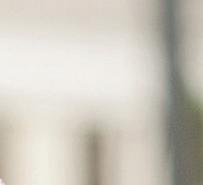




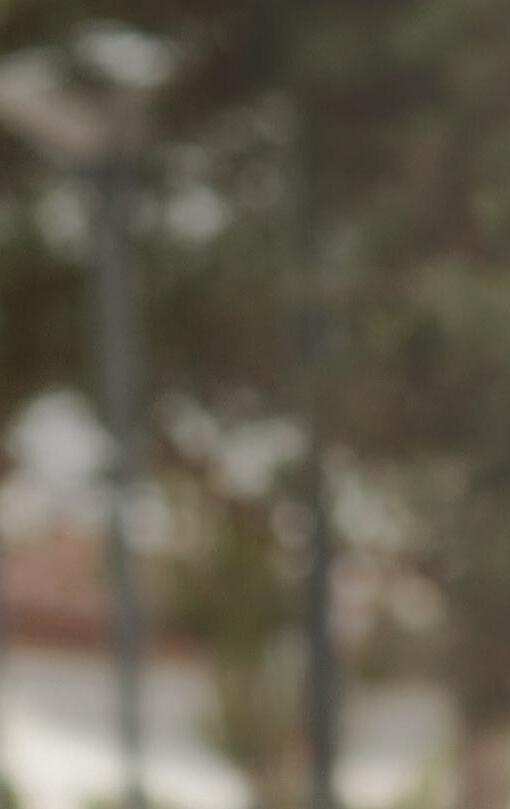







Clarendale Arcadia is designed for those who refuse to be defined by age.
For those who believe sophisticated, at-your-service living never goes out of style.
For artists, fitness enthusiasts, social butterflies, and lifelong learners.
With a wide variety of amenities to suit your preferences, engaging activities that keep you active, and inspired personalized services tailored to your needs, you can live exactly how you want –and as boldly as you choose.

SHANNON LEVITT | STAFF WRITER
Nearly 20 years ago, Bruce Levin volunteered to take a unique road trip for both religious and sentimental reasons. In 2007, he drove from Connecticut to Chicago with a very special Torah in tow. The two-day journey in his rented Chevy SUV, or as he referred to it, the Torah Blazer, gave Levin a lot of time to reflect on his father’s life, Jewish tradition and the lessons each offered on how to be a better parent.
Levin, 72, who splits his time between Scottsdale and Chicago, cherished his memories of those two days and all that followed so much that he ultimately decided to put them down on paper. He published “The Torah Road Trip: Abraham Rides Shotgun” last year.
The crux of the story actually began much earlier than 2007. Levin takes his readers back to the early 1960s and the death of his father’s good friend and fellow congregant of Temple B’nai Israel in New Britain, Connecticut. He was sad and wanted to commemorate his friend’s life.
“My dad led a consortium of other temple members to commission the creation of a Torah in Israel that would be shipped over to Connecticut and donated in his friend’s honor,” Levin explained. Fast forward to 2007. Levin’s mother was living in Palm Beach and received a call from her old Connecticut congregation. It turned out Temple B’nai Israel was closing its doors and a board member reached out.
“This woman remembered that my dad had been instrumental in donating the Torah and asked if anyone in my family was affiliated with another temple that the Torah could be passed onto,” Levin said. His father passed away in 2004, so his mother called him and he immediately agreed to look into it.
Levin consulted his own rabbi in Northbrook, Illinois, on the outskirts of Chicago, and told him he would like to give the Torah a new home there at Temple Beth El.
“My rabbi embraced me with open arms, and said we could put it in the vestibule of the temple and build a glass ark around it,” Levin said.
The only problem now was how to transport the Torah. Levin investigated how to do this halachically and realized the safest way was to drive it. He flew to Connecticut and rented a car.
It was also a chance to see some of his old friends from religious school, who helped him wrap the Torah and secure it in the car.
“We took a tour of our temple for the last time, and talked about the memories
we had there,” he said.
Most of the drive went smoothly, with the exception of a few minor hiccups. For example, when he stopped for the night, he wanted to bring the Torah into the hotel room for safekeeping, even though he found himself in the middle of a downpour. He wrapped the Torah carefully, bent his body around it and ran inside.
“Having placed the Torah on a dolly with a sheet over it, it looked as though I was smuggling a body in and out of the hotel,” he laughed.
When Levin finally arrived home at midnight, his wife wanted to clean and polish the silver cover.
“My wife and her friend cleaned, scrubbed and polished its silver casing, which took several days to do. So I called the rabbi and asked, ‘Is it OK that the Torah is here at our house? We need a couple more days to brighten it up,’” he said. Once he got the go ahead, the process took four days. It’s one of the scenes he writes about in his book.
Two years after his trip, his son had his bar mitzvah and read from the Torah Levin had delivered to his home congregation. For that reason and more, Levin describes the book as more than merely a road adventure.
“My dad came alive for me on that trip,” he said. In the early 1990s, he and his sister recorded their father telling stories about his life. He weaves those stories into the book, along with lessons from the Torah, and “what it takes to be a good father,” he said.
Levin asked his rabbi to read the book before its publication, since there were so many Jewish references and he wanted “to make sure everything was kosher.”
Levin spent his career in marketing, and 25 years ago, he joined his wife in running their company Rap Sessions, which involves running focus groups for large consumer packaged-goods companies. Thus, he’s written a lot of marketing copy and loves to write overall.
Still, it took him some time to sit down and write his trip memoir. When business slowed in 2020, due to the COVID-19 pandemic, he finally made some headway.
“I consider myself really privileged to experience this whole journey of transferring the Torah to my temple. I just wanted to capture this unique and meaningful expedition somehow,” he said. JN
Bruce Levin’s book is available on Amazon.
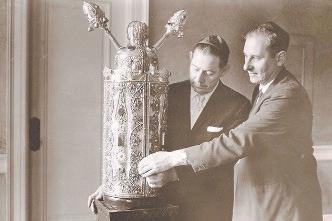
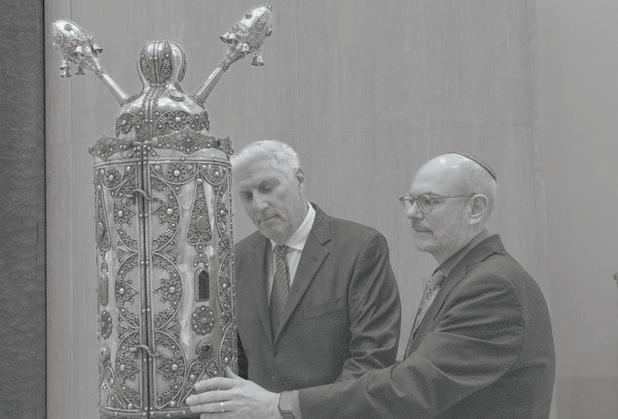
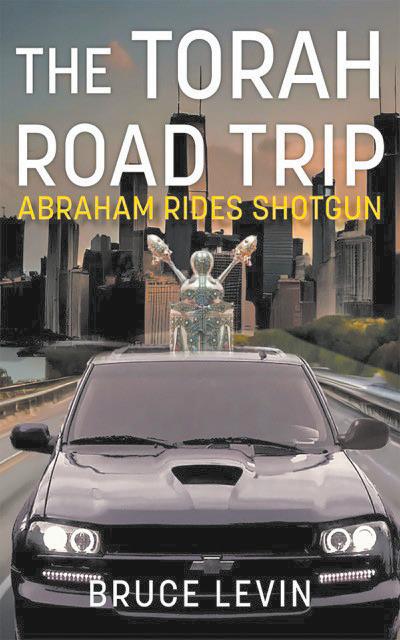

MALA BLOMQUIST | MANAGING EDITOR
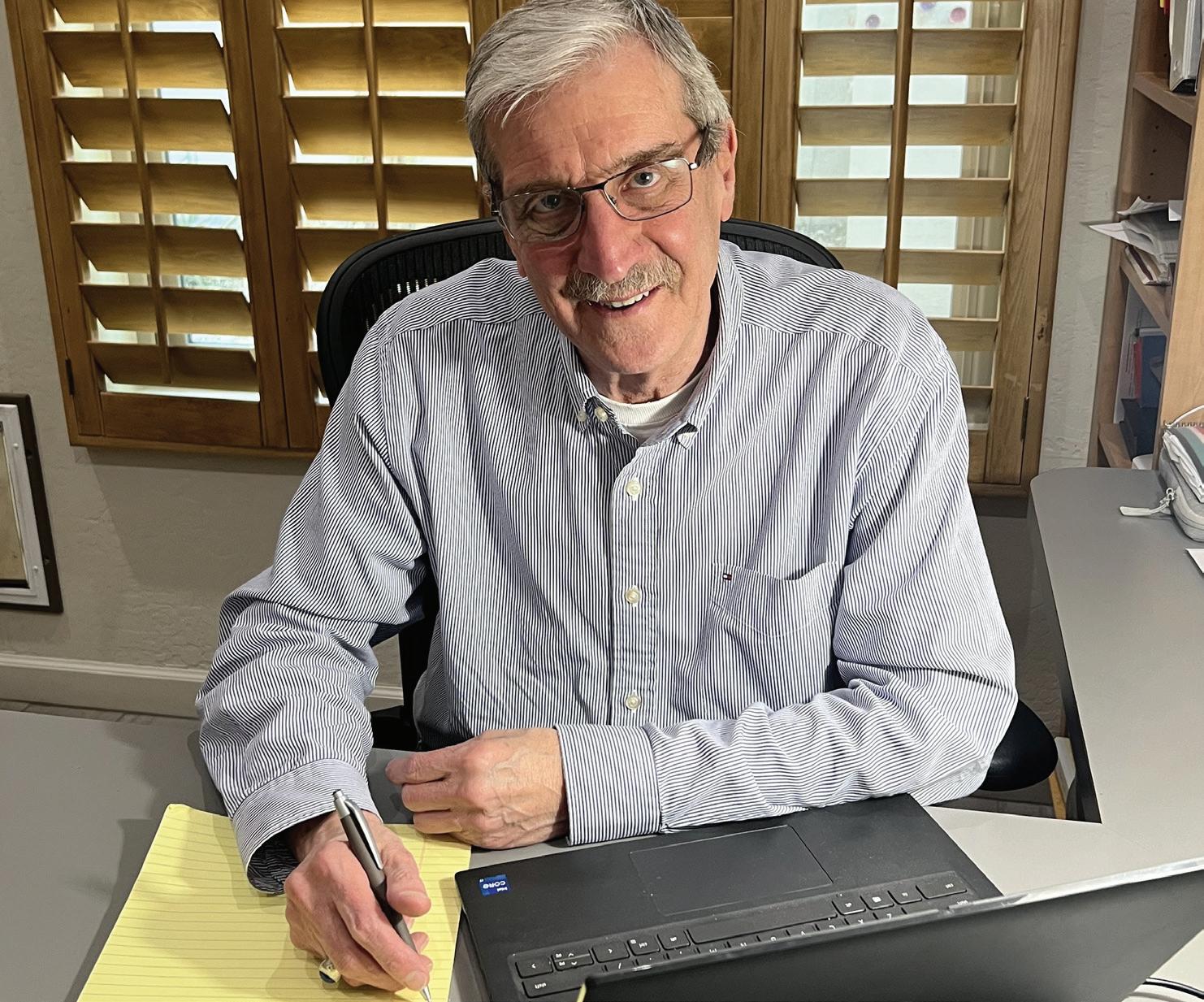

Concierge Senior Placement Services for Independent Living, Assisted Living and Memory Care Communities & Care Homes
Family-Owned & Operated Since 2016 Free Community Service (Compensated By Our Provider Partners)
Don’t Go About This Alone, We Are The Local Experts And Guide You Every Step Of The Way
Servicing: Scottsdale, Paradise Valley, Fountain Hills, Mesa, Queen Creek

When people call their doctor, usually they get a call back from a medical assistant who answers one question, but the conversation often provokes more. Or they have problems reaching anyone at the practice to answer questions in the first place.
That’s a big reason that Scottsdale resident Dr. Marc Lato decided to launch his patient advocate business, “The Doctor Is In.”
“Most of us know the health care system is broken, and it’s difficult for many patients to get answers to their questions or to understand what’s going on,” he said. “Sometimes they may have a diagnosis that they didn’t expect. They may have a symptom that they didn’t know was related to their diagnosis, questions about a drug they’re taking, or a drug interaction that they’re unaware of or an X-ray report they don’t understand. Just a myriad of things that they may have questions about.”
Lato was not ready to retire when he decided to stop practicing medicine in 1998. “My midlife crisis was not getting a new car or a new spouse. It was getting into a new field,” he joked.
He started working in the managed care field as a medical director and physician executive with companies such as Blue Cross Blue Shield of AZ, Arizona Medicaid, known as AHCCCS (Arizona Health Care Cost Containment System) and Dignity Health.
Lato “retired” from his position as vice president of medical management at St. Joseph’s Hospital and Medical Center in Phoenix in 2017 and went to work as interim medical director for nine months in 2019 at Denver Health Medical Plan in Colorado, where his daughter lives.
When he returned to the Valley, he continued consulting and then in December 2024, he opened up his new advocacy business.
From his previous experience in medical administration, Lato also has a broad background in dealing with insurance issues. So, that is also part of the service he will offer.
“My goal in this is to try to take any insurance issue, be it simple or complex, and make it useful and understandable for the patient or the beneficiary,” he said. Lato, 74, moved to Phoenix from
Chicago when he was 14. He attended Central High School in Phoenix and went to medical school at the University of Arizona. Upon graduation, he did his residency at St. Joseph’s Hospital and Medical Center in Phoenix.
“When we moved here, I remember 32nd Street and Shea Boulevard had three gas stations and a bank,” he said. “It was paved to Scottsdale Road, but it wasn’t paved after that. Going to the Frank Lloyd Wright house (Taliesin West) was a trek. There were also no freeways.”
Lato was originally a member of Beth El Congregation (Beth El Phoenix) and then joined Congregation Or Chadash, now Congregation Or Tzion in Scottsdale. (Or Tzion was formed in May 2014 when the Conservative synagogues Congregation Or Chadash and Har Zion merged.)
“After we left Beth El, we were in what I call the ‘congregational diaspora’ for a couple of years, until we figured out where we wanted to go,” he said.
When Lato had his private practice in Phoenix in 1998, he said he tried to answer his patient’s questions before they left, and they also always got a follow-up call. If a patient called outside of office hours, they would get an answering service with a person, not a message that said, “If this is a medical emergency, dial 9-1-1 or go to the nearest emergency room.”
He also wants to meet with his clients in person, rather than talk to them over the phone, whenever possible.
“You can tell so much more by people’s facial expressions and how they react to what you say and what you do,” he said. “When people used to come to the office, my first question would be, ‘So how are you?’ They would always say ‘fine’ and then proceed to tell me what their complaint was.”
His initial consultation is complimentary, and he will never charge any Holocaust survivor a fee for his services.
“I’m not doing this to make a financial killing,” he said. “I’m doing this to help people. I’m passionate about health care and medical care, and I have always been, and still am, passionate about patient care. If I can make a difference, that’s great.” JN
For more information, contact Dr. Marc Lato at 602-228-5591 or mlato14@gmail.com.
“MOST OF US KNOW THE HEALTH CARE SYSTEM IS BROKEN, AND IT’S DIFFICULT FOR MANY PATIENTS TO GET ANSWERS TO THEIR QUESTIONS OR TO UNDERSTAND WHAT’S GOING ON."
DR. MARC LATO
BOB ROTH | COLUMNIST

As we approach Valentine’s Day, a time traditionally dedicated to love and connection, it’s essential to pause and reflect on the deep human need for meaningful relationships. In a world where digital screens increasingly dominate our attention, the need for real, human connection has never been more pressing. Dr. Anna Lembke, in her insightful article “Digital Drugs Have Us Hooked,” explains how excessive screen time can disrupt our ability to connect meaningfully with others. The digital world, while offering many conveniences, often pulls us away from the more rewarding, in-person interactions that are essential for emotional and physical well-being. For older adults, maintaining these meaningful connections is vital. Contrary to what many may assume, intimacy and social engagement are not just for the young, they are essential at every stage of life. Yet, the truth is that older adults often experience higher rates of isolation. This sense of disconnection not only affects emotional health but also has significant impacts on physical well-being. Strong relationships, both romantic and platonic, contribute to a sense of purpose and fulfillment. This is something many don’t realize: intimacy and connection are just as crucial for heart health in later years as they are for younger generations. Sadly, as technology continues to shape our lives, it has a paradoxical effect. The very tools meant to connect us can drive us further apart. The addictive nature of digital platforms often leads to people becoming absorbed in virtual worlds at the cost of real-life relationships. Lembke’s research sheds light on the consequences of this addiction, pointing to the way in which constant stimulation and validation from digital spaces can erode the quality of real-world relationships. Rather than feeling more connected, people often find themselves feeling lonelier, stuck in an endless cycle of virtual interactions that fail to fulfill our deepest needs.
But the truth is that humans are inher-
ently social creatures. We thrive on meaningful interactions that nurture our mental and physical health. For older adults, this sense of connection holds even more weight. Research shows that strong social relationships can increase longevity by 50%, while social isolation and loneliness are closely linked to higher risks of heart disease, stroke and cognitive decline. The simple act of spending time with loved ones, friends, or even a community group can boost emotional health, leading to a more vibrant life in later years.
This understanding brings us to the importance of intimacy at every age. We often think of intimacy as something that fades with time, but it’s not just about physical closeness. Intimacy, in its truest form, involves emotional bonds, shared experiences and the mutual care that keeps relationships strong. For older adults, the benefits of intimate connections are profound. These relationships not only help reduce stress but also improve mental health, strengthen the immune system and provide the emotional support needed to navigate the challenges of aging. The value of intimacy, whether through a long-term partner, close friends or family, is one that should never be underestimated.
As we approach Valentine’s Day, it’s crucial to remember the older adults in our lives who may be facing the added challenge of social isolation. A simple gesture of a visit, a phone call or even a card, can make all the difference. It’s not just about celebrating love on a single day; it’s about creating lasting connections that enrich the lives of those around us. Reaching out to the isolated and offering emotional engagement isn’t just a nice thing to do; it’s essential for their heart health and overall well-being. The warmth of human interaction and the presence of loved one’s help combat the damaging effects of loneliness, offering comfort, joy and strength.
This Valentine’s Day let’s make it a point to reach out. Whether it’s to a neighbor, a relative or a friend, show that you care and recognize them. Engage in conversations, share experiences and, most importantly, listen. We can be the connection that so many older adults long for, offering not just companionship but a profound sense of belonging. In doing so, we not only improve their hearts, but also our own. JN
“Jewish Free Loan values the Jewish News as an essential community resource and trusted partner. Their feature stories and advertising opportunities, both in print and online, enhance community engagement and increase awareness of available services. Collaborating with the Jewish News amplifies our outreach to potential borrowers and donors, while fostering stronger connections with local partners.”
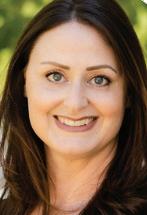
Ellie Friedman Sacks Executive Director, Jewish Free Loan
Email advertising@jewishaz.com for more information.

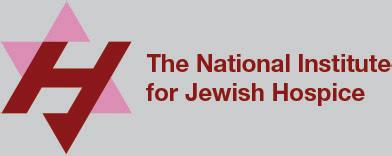





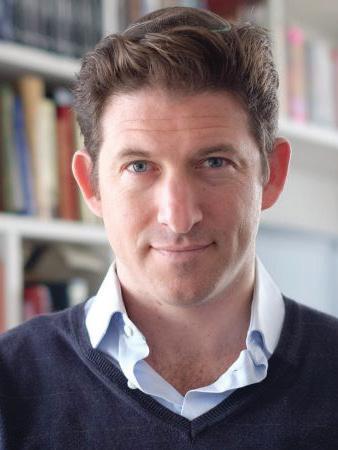

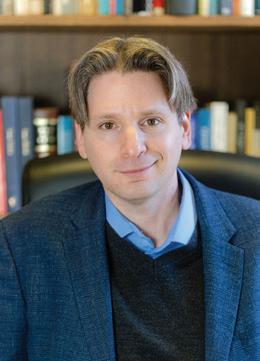








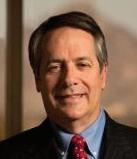






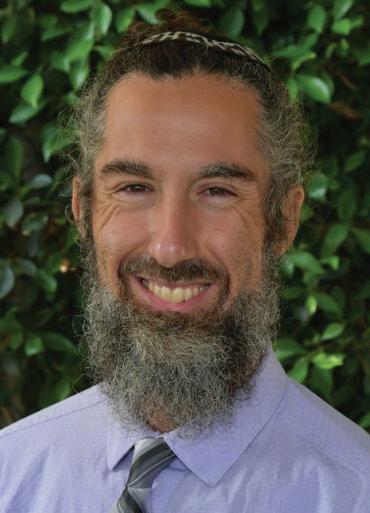
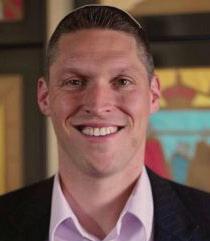




Valley Beit Midrash wishes everyone a shana tovah, a happy new year filled with joy and love. We invite you to join us in pursuit of improving lives in our communities through transformative learning and action. Here’s how you can plug into our work this year:
1. Learn with us at our upcoming classes. We have multiple pluralistic o erings each week and options for both virtual or in-person learning.
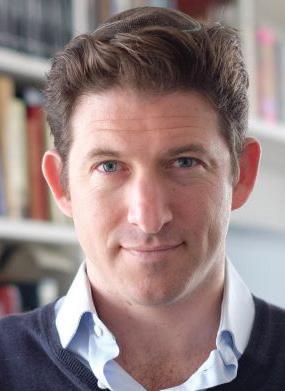

2. Serve with us and volunteer with Arizona Jews for Justice to help uplift the most vulnerable members of our community.

3. Reach out if you are looking for internship or fellowship opportunities for teens and young adults. We would be thrilled to tell you more about our leadership development programs.

Israelis and Diaspora Jews are experiencing the upheavals caused by the October 7 massacre in di erent ways, but we share trauma and deep unease about the future. How will Israel emerge from the crisis? What changes should we hope for in Israeli society? The Middle East? The American Jewish-Israeli relationship?

4. Become a Legacy donor. By joining the Jewish Education Legacy Society of Valley Beit Midrash you will ensure VBM has the ability to provide engaging learning opportunities and save lives in our communities for many years to come.
We hope this year will be a time of renewal and growth and that we will experience many joyful moments together in the year ahead.





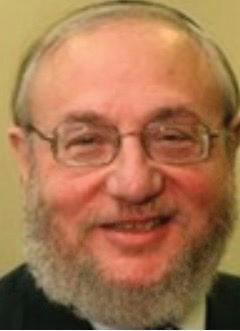



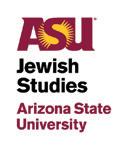

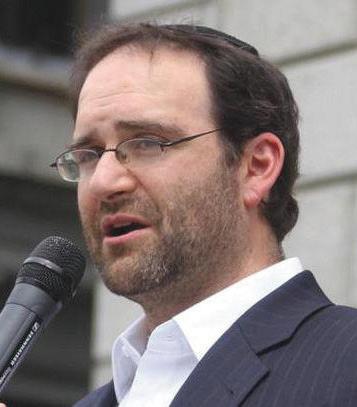
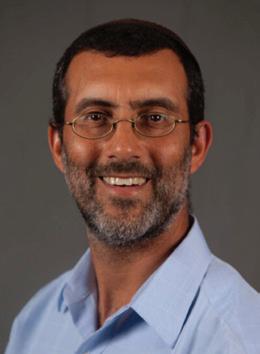

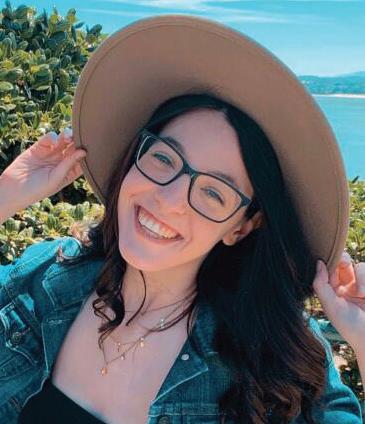

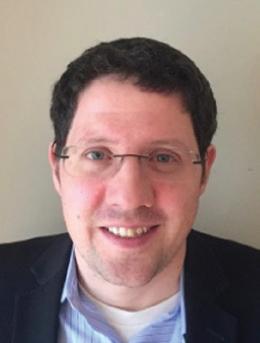



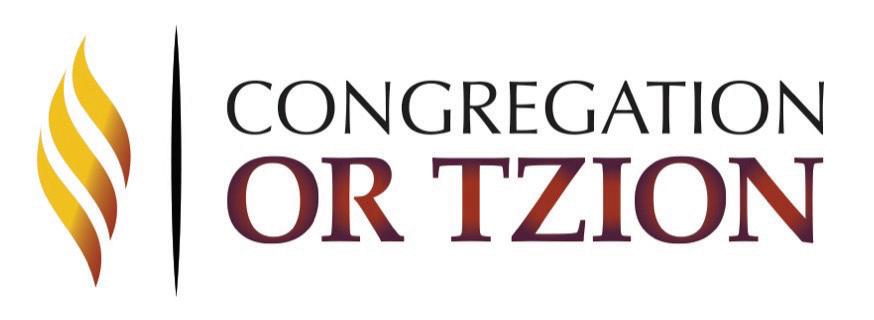











MALA BLOMQUIST | MANAGING EDITOR
Nearly 25 years ago, a Hollywood producer was looking for someone who sounded and looked like a young Steve Lawrence for a scene in a new movie that would briefly feature the iconic singing duo of Lawrence and his wife, Eydie Gormé.
The producer asked an attorney friend who responded, “What about his son, who looks exactly like Steve Lawrence?” The attorney happened to represent David Lawrence, the son of the two entertainers.
So, the younger Lawrence, played his father in the movie, along with Tony Award winner Debbie Gravitte, who played his mother. Ever since, they talked about doing a tribute show but it didn’t seem right because “Steve and Eydie,” as they were known, were still working at the time. Then Gormé died in 2013, and Steve Lawrence was diagnosed with Alzheimer’s disease in 2018.
“Debbie and I thought, maybe now is the right time to put a show together to pay tribute to them and pay homage to the great Steve and Eydie and the great music, arrangements and orchestrations,” said Lawrence.
Lawrence and Gravitte have performed “A Toast to Steve & Eydie” across the country, and Arizona Musicfest will bring it to the Valley on March 15 for a 2 p.m. performance at Highlands Church in Scottsdale.
Being immersed in music since infancy, it would seem natural that Lawrence would follow that as a career path, but he actually studied pre-med and was pursuing a career as a surgeon.
“But I had to take a really hard look at what I wanted to do that would make me happy and feel fulfilled, and I always came back to music,” he said. “Although I’ve been a singer most of my life — I inherited both my mom’s and dad’s voices and ranges — I wasn’t interested in pursuing being an artist. I was much more interested in pursuing being a composer.”
Lawrence graduated from the Mannes Conservatory of Music in New York with a degree in composition and piano and moved to Los Angeles in the late 1980s to pursue a career in film, television and recording. He worked with his songwriting and producing partner, Faye Greenberg, who later became his wife.
“I spent years working on my career, and I was very fortunate to be a successful film and television composer, songwriter and producer,” he said. Part of that success was scoring the music for Disney’s “High School Musical” and “Descendants” franchise.
When Gormé passed, Lawrence wanted to do something different to honor her, so his wife suggested that he look at the Spanish material Gormé performed, which he loved listening to as a child.
“My mom was a Sephardic Jew, her parents were of Spanish descent, and she was one of the first white Latinas to introduce bolero-style music to the United States,” explained Lawrence. “She did all these recordings with Trio Los Panchos and sold millions of records, and she’s still revered as a queen of bolero music all over Latin America, Spain and South America.”
The resulting album is “Nosotros,” which he arranged and produced with Greenberg in 2019. “I wanted to do it as an artist and sing these songs back to her,” he said. “I am very proud of that album.”
Even though Steve Lawrence was diagnosed with Alzheimer’s disease in 2018, he was still able to appreciate the album. Unfortunately, he never saw “A Toast to Steve & Eydie.”

Brandeis Phoenix presents
Greater Phoenix’s Premier
Book & Author Event 2025
Greater Phoenix’s Premier Book & Author Event 2025
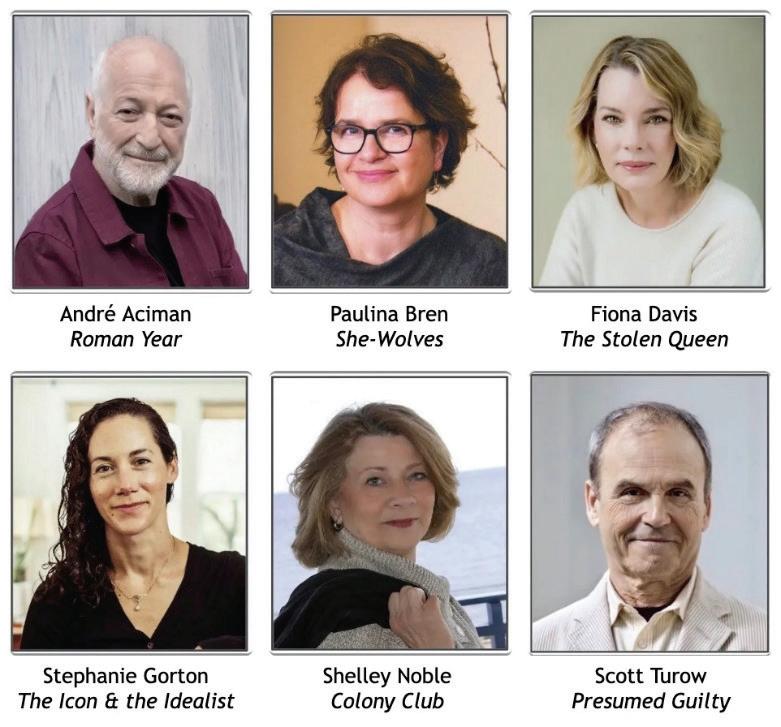
Monday, February 24, 2025
Monday, February24, 2025
6 New York Times Bestselling Authors
6NewYorkTimesBestsellingAuthors
Monday, February24, 2025
Luncheon•Boutiques
Luncheon • Boutiques
6NewYorkTimesBestsellingAuthors Luncheon•Boutiques
9:00 am ~ 3:30 pm
9:00 am ~ 3:30 pm
9:00 am ~ 3:30 pm
Westin Kierland Resort • Scottsdale
Westin Kierland Resort Scottsdale
Westin Kierland Resort Scottsdale Check




SON CONTINUED FROM PAGE
In 2020, Steve Lawrence was well enough to travel, but 10 days before they were to perform their first show, it was canceled due to COVID-19.
On March 18, 2024, he and Gravitte performed for a sold-out crowd in Zankel Hall, 10 feet away from where his parents gave their sold-out shows.
“It was a very emotional and powerful evening for me,” he said.







Daughters’ speaks about her latest book, ‘The Midwives’ Escape: Egypt to Jericho’
Tuesdays | 10-11:30 a.m.
Feb. 11: Phoenix Art Museum
Feb. 18: Journeys to Authorship
Feb. 25: Rabbi Mendy Deitsch
March 4: Dan Fellner
March 11: Phoenix Art Museum
evjcc.org/tuesdays
“That was the last opportunity I had with him to come and see the show,” said Lawrence. “When we finally did it a year later, he was too sick.” He said that that first concert in 2021 was very emotional because it was the culmination of years of trying to get the show on its feet.
On March 7, 2024, at 88, Steve Lawrence died.
The duo has also performed at other venues where his parents entertained, including the McCallum Theatre in Palm Desert, California, where Steve and Eydie played for 25 years. Lawrence wants people to know that even though he and Gravitte are “dressed to the nines” in a tuxedo and gown, with a 30-piece orchestra, they are not doing impressions of his parents.

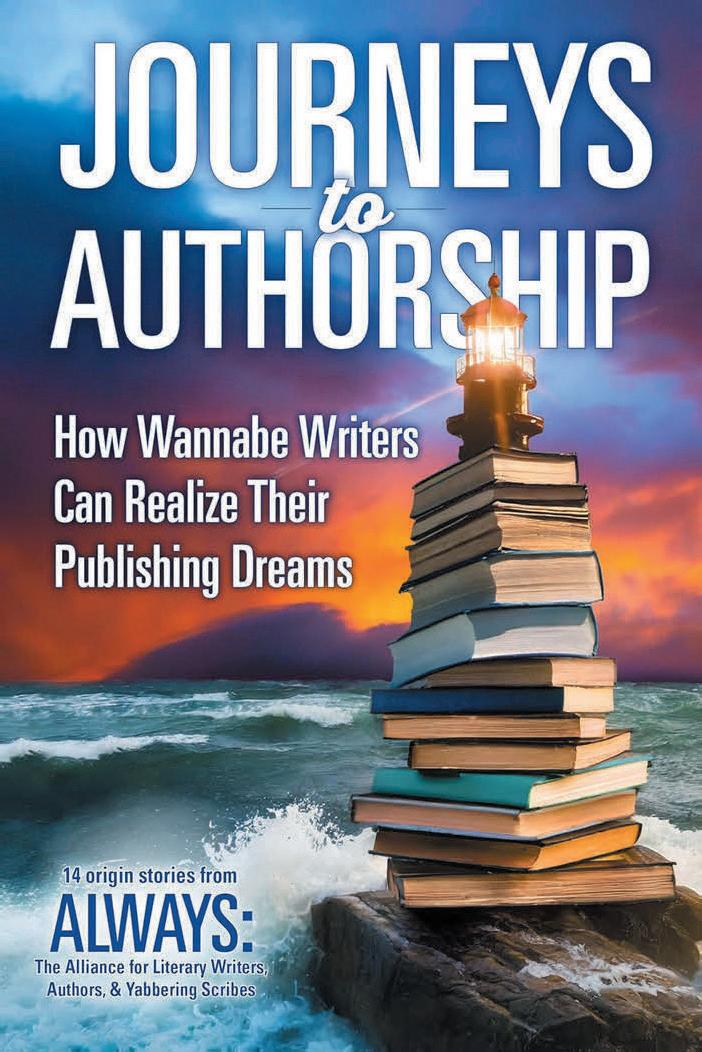
Lawrence said that the most “difficult and bittersweet” concert he performed was at Carnegie Hall, 11 days after his father died.
“Fay and I produced that concert at Carnegie Hall,” he said. “My parents played 16 sold-out performances at Carnegie Hall. So, we wanted to go back there as an homage to the great shows they did there.”
“We’re coming out to celebrate them, and we share stories on how this song came to be and we do some bits that we extracted from their earlier shows in the ‘60s and ‘70s. We do a five- or six-minute vignette of classic Steve and Eydie back in the day,” he said. “But the rest is just Debbie and my chemistry, singing together and doing solos. I just love being up there singing these amazing songs. It’s just a thrill.” JN
For more information, visit azmusicfest.org.
“MY MOM WAS A SEPHARDIC JEW, HER PARENTS WERE OF SPANISH DESCENT, AND SHE WAS ONE OF THE FIRST WHITE LATINAS TO INTRODUCE BOLERO-STYLE MUSIC TO THE UNITED STATES.”


Wednesday, Feb. 19 10-11:30 a.m.
‘Little Boy, I Know Your Name, a Second-Generation Memoir from Inherited Holocaust Trauma’ with Mitchell Raff (Also at a private home in Scottsdale in the evening. In partnership with the Phoenix Holocaust Association.) evjcc.org/generations-after
Israeli Film Series (Feb. 9 & March 9): evjcc.org/film
Jewish Art Education: The Art of Purim (Feb. 26) and The Art of Passover (March 26): evjcc.org/artists
‘Divorce, Insanity & Halacha’ class taught by Karolyn Benger (March 5): evjcc.org/obm


All community programs are free, registration required. Classes are held at the EVJCC unless otherwise stated. East Valley JCC, 908 N. Alma School Road, Chandler
480-897-0588 | evjcc.org














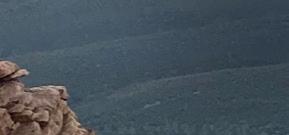

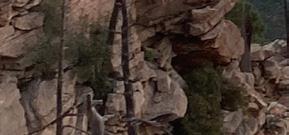










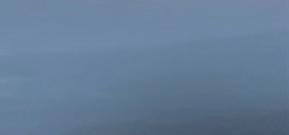
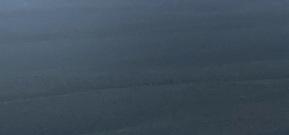
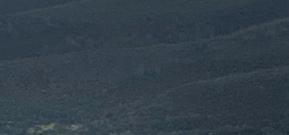


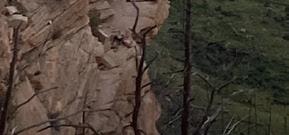
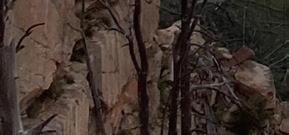



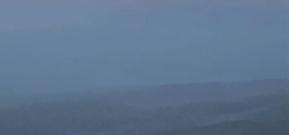

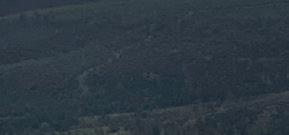


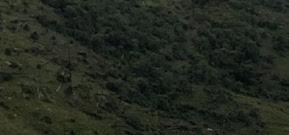

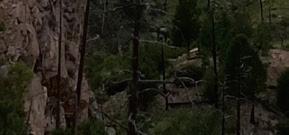















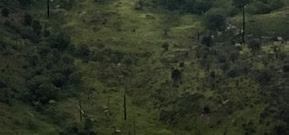
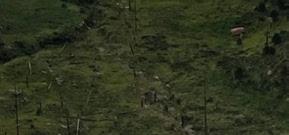






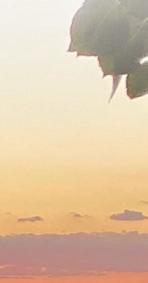




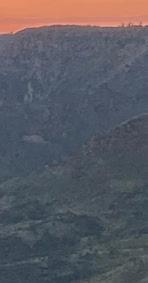






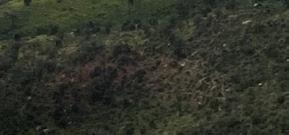

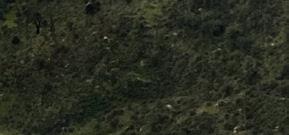
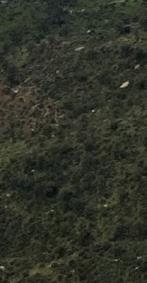
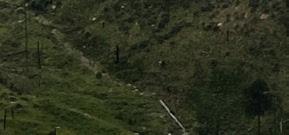
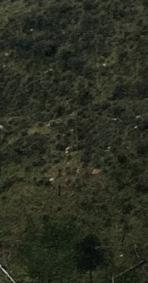
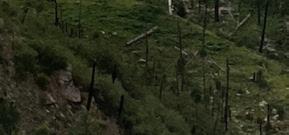









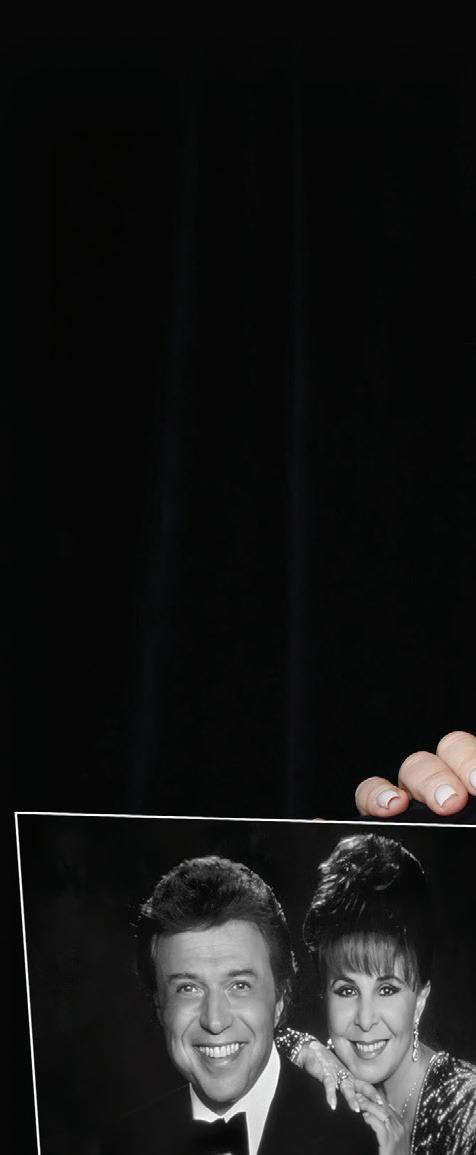






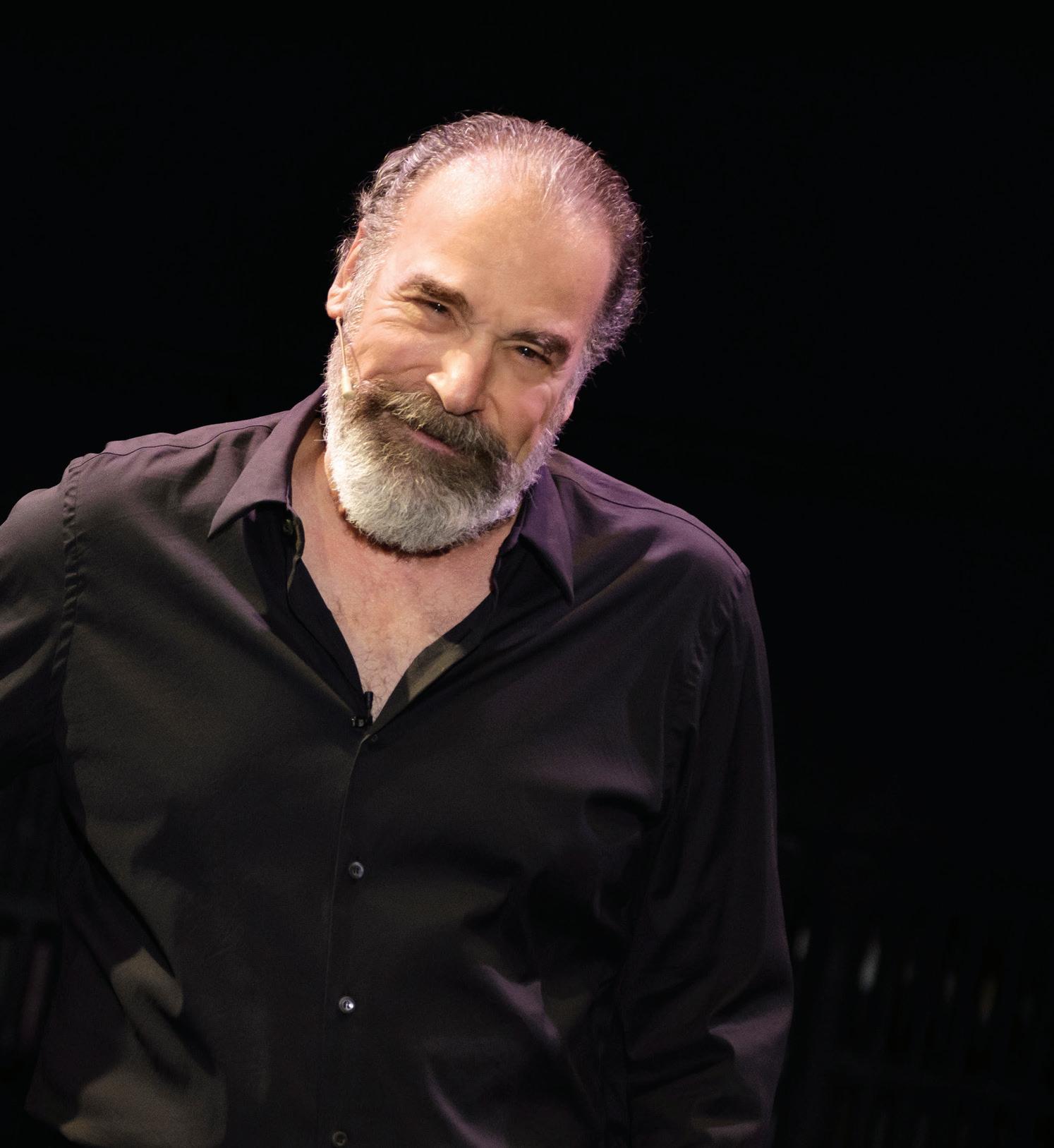


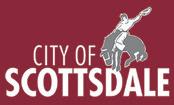
MALA BLOMQUIST | MANAGING EDITOR
Women who dared to enter the old boys’ club of Wall Street from the 1950s through Sept. 11, 2001; two fierce women who brought the fight for reproductive rights to the American public in the early 20th century; and a womenonly, private social club founded in New York City in 1903, are just a sampling of the book topics featured at the Brandeis National Committee Phoenix Chapter’s Book & Author 2025 Event on Feb. 24 at the Westin Kierland Resort & Spa in Scottsdale.
“All the topics of these books are really relevant to what’s going on in the world today,” said Joellyn Pollock, co-chair of the event. “We took it for granted that we have these rights, and these women were out there but, in fact, these rights are now being threatened as well.”
The authors of the aforementioned books who will be present at the event are Paulina Bren, “She-Wolves: The Untold History of Women on Wall Street;” Stephanie Gorton, “The Icon & the Idealist: Margaret Sanger, Mary Ware Dennett, and the Rivalry that Brought Birth Control to America;” and Shelley Noble, “The Colony Club.”
The committee that picks the authors looks for “big names” and books that have recently come out, said Pollock. “We have six fabulous, amazing authors. Their books have just come out, and they’re already winning many awards and being nominated for the top ‘this and that,’” she said.
The three people on the author committee each picked two authors, researching the writers and working with their publicists.
“Interestingly enough, we never asked the author committee, ‘Do you like nonfiction?’ All of them came on board thinking
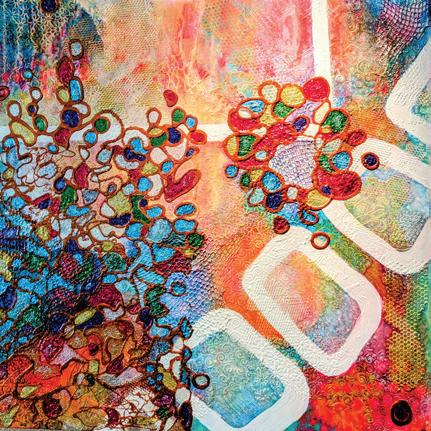

“WE HAVE SIX FABULOUS, AMAZING AUTHORS. THEIR BOOKS HAVE JUST COME OUT, AND THEY’RE ALREADY WINNING MANY AWARDS AND BEING NOMINATED FOR THE TOP ‘THIS AND THAT.’”
JOELLYN POLLOCK
that they would get to do fiction books. Two of them collaborated on the nonfiction part, and they enjoyed it,” said Pollock.
The other authors headlining are André Aciman, “Roman Year: A Memoir;” Fiona Davis, “The Stolen Queen;” and Scott Turow, “Presumed Guilty.” Turow’s first novel, “Presumed Innocent,” was made into a movie and television series and he is in talks about the film adaptation of his latest novel.
Phoenix native Amy Silverman is moderating for the second year. She is the

executive producer of “The Show” on KJZZ, the National Public Radio affiliate in Phoenix. Silverman is also an author. She published“My Heart Can’t Even Believe It: A Story of Science, Love, and Down Syndrome” in 2016, a memoir of her experience raising a daughter with Down Syndrome.
Changing Hands Bookstore is handling book-selling logistics, and co-chair Patti Grossman is excited to be working with the local company this year.
“They’ll have books by all of these authors available for people to purchase, and each of the authors will have tables, as in the past, and they can come over and have their book signed and have a little conversation with the authors,” she said.
Proceeds from the Book & Author event will benefit Brandeis National Committee’s Engineering the Future campaign at Brandeis University, a multi-year fundraising effort to establish a professorship in engineering sciences.
“I think there’s a $3 million target to fund a chair at Brandeis University that will look at science integrated into all the other disciplines,” said Pollock. “It’s an interdisciplinary program and a new approach to engineering.”
Another aspect of the event is the boutiques section, which is open all day and
you don’t have to attend the luncheon to shop there.
“We have 12 boutiques; four will be new this year, and they’re all women-owned businesses,” said co-chair Ileen Herberg. She said that it wasn’t intentional that they were all women-owned businesses. “It just worked out that way, and we are thrilled,” she said.
Organizers are expecting around 700 people to attend this year. In the years before the pandemic, attendance was usually more than 900.
“Half of the people who come are actually Brandeis members, but the other half tend to be book clubs from the community and people’s friends,” said Pollock. “People come because it’s such a great event.”
Grossman said she has read almost all of the featured books and that she walked away with something different from each one.
“Some are a little lighter reading, some a little heavier reading, some taught me something and some I could just sit back, read and enjoy,” she said. “They each brought something to me, and I think every one of these books leaves you thinking.” JN
ba2025.



Lovely November evening
Hundreds enjoyed themselves at last month’s annual gala for the Valley of the Sun Jewish Community Center.
Mazel tov on a big first
The Arizona Jewish Historical Society held a community fundraiser on Nov. 17 to replace lost revenue during construction of the Hilton Family Holocaust Education Center and maintain AZJHS’ cultural and education programs.
Denise Israel, left, and Rabbi Alicia Magal of the Jewish Community of Sedona and the Verde Valley sing "Lu Yehi," a Hebrew song that speaks of hope for peace during a commemoration service, Remembering Oct. 7, 2023, to honor those murdered in the Hamas attack on Israel last year.
Temple Kol Ami Executive Director Nancy Drapin was recently recognized for her leadership at a national professional conference. A Senior Member is a certified credential by the National Association of Temple Administrators for those who are distinguished as experts in the field of synagogue management.
On Thanksgiving, Chabad of Fountain Hills members participated in the 40th Annual Fountain Hills Thanksgiving Day Parade. They gave out “The Good Card,” which encourages everyone to fill their lives with good deeds and observe biblical laws, kosher candy and charity boxes for tzedakah.
Shoshana Beran, left, and Nicole Pendergast became great friends participating in the Bureau of Jewish Education of Greater Phoenix’s (BJE) single parents’ zoom every month. Here they are together at the BJE’s Rosh Hashanah event for single parents.
OF
OF
Temple Kol Ami Rabbi Jeremy Schneider and Cantor Noa Shaashua spoke and sang about Chanukah at the annual State of Arizona Christmas tree lighting at the Capitol with Governor Katie Hobbs, center, on Monday, Dec. 2.
Arizona State Representative Alma Hernandez congratulates U.S. Senator-Elect Reuben Gallego of Arizona for becoming the state’s first Latino senator.
OF
with a thank-you gift for her past 10 years of hands-on work guiding the community through the Life & Legacy program. Arlene is retiring at the end of the year. Life & Legacy is a program of the Center for Jewish Philanthropy of Greater Phoenix.
NowGen, a program of the Center for Jewish Philanthropy of Greater Phoenix that connects Jewish adults in their 20’s through 40’s in community, philanthropy and leadership, hosted another successful happy hour on Tuesday, Sept. 24, at RnR Gastropub in Scottsdale. COURTESY OF NOWGEN
Arizona Jews for Justice led a rally in support of immigrants the first week of December. The rallygoers were joined by a group of 14 California women who came to volunteer with AJJ for a few days.
COURTESY OF RABBI JEREMY SCHNEIDER

The Women of Congregation Beth Israel hosted its inaugural Women’s Retreat, held Dec. 13-15, at the Spirit in the Desert Retreat Center in Carefree. In addition to Shabbat and Havdalah services, the 40 attendees made personalized Shabbat candlesticks, did a mitzvah project for Jewish Family & Children’s Service and participated in several learning sessions throughout the weekend.
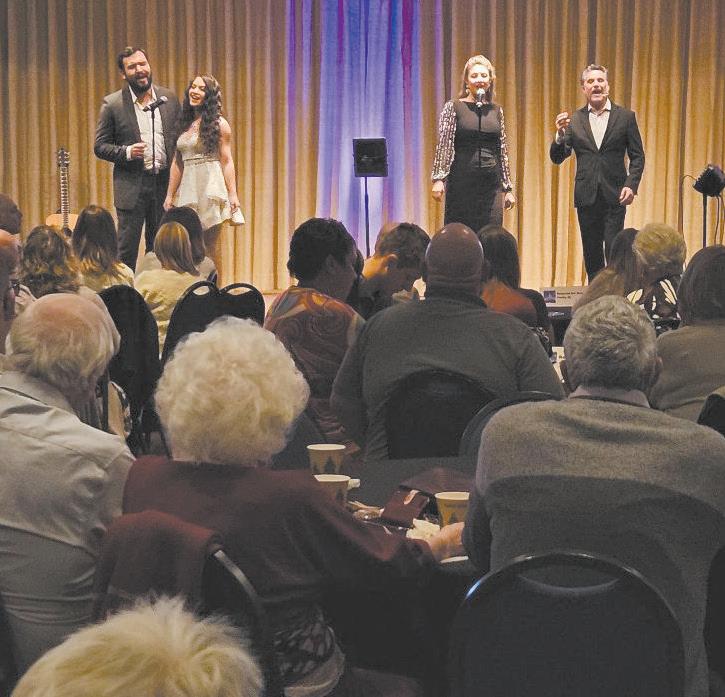
And the winner is...

Kids helping out Temple Solel fifth
Last month, Jewish Community Relations Council of Tucson Director Lynn Davis received the Arizona Faith Network’s Peacemaker in Action Award for 2024. Davis was recognized for her efforts to strengthen Arizona’s democratic norms and values and fighting antisemitism and extremism against all vulnerable communities in the state.
Moms and daughters (in grades 6-10) from the Center for Jewish Philanthropy of Greater Phoenix Tikkun Olam Together service group brought donations to create Chanukah baskets for Arizona Kosher Food Pantry clients. They filled the baskets with latke mix, apple sauce, dreidels, gelt, candles, stickers, art projects and decorations, in addition to bringing and wrapping toys for children of all ages.
For his swearing in as a new member of the Scottsdale City Council on Monday, Dec. 9, Adam Kwasman used his family’s copy of a Hebrew Bible published by the late Rabbi Adin Steinsaltz. Orit Kwasman, his wife, held the Bible for him.
On Monday, Oct. 7, Reverend Bruce Scott, left, director of program ministries for the Friends of Israel Gospel Ministries, presented Steve Hilton with a $5,000 gift for the Building a Legacy of Hope Capital Campaign. This is the first significant gift from the interfaith community in support of the Hilton Family Holocaust Education Center, which should break ground next year.
OF
OF
OF
COMMUNITY page features photos of community members around the Valley and the world. Submit photos and details each week to editor@jewishaz.com by
More than 200 seniors enjoyed last month’s Smile on Seniors’ Chanukah party. Pictured from left are Wayne Peterson, Laurie and Dennis Checkoway, David and Ellen Tuckman, Donna Harris, Arlene and Barnett Lotstein.
This COMMUNITY page features photos of community members around the Valley and the world. Submit photos and details each
This COMMUNITY page features photos of community members around the Valley and the world. Submit photos and details each week to editor@jewishaz.com by 10 a.m. Monday.
SUNDAY, FEB. 9
Super Bowl Party:
4:30-9 p.m. Smile on Seniors, 2110 E. Lincoln Drive, Phoenix. Join SOS to watch the big game with friends. For more information, visit sosaz.org/superbowl.
FRIDAY, FEB. 7
Community Shabbat Family Dinner: 5-6:30 p.m. Valley of the Sun Jewish Community Center, 12701 N. Scottsdale Road, Scottsdale. Join the Valley of the Sun JCC, PJ Library, Pardes Jewish Day School and the Bureau of Jewish Education of Greater Phoenix for dinner, singing and crafts with other young families. For more information, visit valleyofthesunj.org.
SATURDAY, FEB. 8
Solelebration: 7-9 p.m.. On Jackson, 245 E. Jackson St., Phoenix. Join Temple Solel for their annual fundraising gala honoring Rabbi John and Nancy Linder. For more information, visit solelebration.com.
SUNDAY, FEB. 9
Tu B’Shevat Eco-Fest: 12:15-2 p.m.. Temple Chai, 4645 E. Marilyn Road, Phoenix. Join Temple Chai and learn how to reduce, reuse and recycle, meet local eco-vendors, enjoy snacks and bring items such as electronics and shoes for recycling. Cost: Free. For more information, visit templechai.com.
February Café Europa: 1-3 p.m.. Congregation Beth Israel, 10460 N. 56th St., Scottsdale. Join Phoenix Holocaust Association for a social and support program for survivors, family and friends. Special guests from Pardes jewish Day School will give plants to the survivors to take home and celebrate Tu B’Shevat. For more information, visit phxha.com/CONNECT.
Super Bowl Party for Veterans: 4:30 p.m. State Veterans Home, 4141 N. Herrera Way, Phoenix. Join the Jewish War Veterans Scottsdale Post 210 for a Super Bowl party. For more information, contact 602-218-0353.
MONDAY, FEB. 10
How to Protect Yourself Against Violence & Antisemitism: 5-8 p.m. Maggiano’s Little Italy, 16405 N. Scottsdale Road, Scottsdale. Join the Jewish Women’s Conservative Forum for a presentation by Dan Urman about personal security and defense strategies. Urman has an extensive career in combat, intelligence and security. Cost: $55. For more information, contact lks19@cox.net.
THURSDAY, FEB. 13
JNF-USA Desert States Annual Breakfast for Israel: 7-9 a.m. Address provided upon registration. Join Jewish National Fund-USA for its annual event featuring speaker Loay Ahmed Alshareef, peace activist and social media content creator. Cost: Free. For more information, visit events.jnf.org/e/bfidesertstates.
Tu B’Shevat Celebration: 4-5:30 p.m. Beth Emeth Congregation of the West Valley, 13702 W. Meeker Blvd., Sun City West. Join Beth Emeth to celebrate the birthday of the tree. Cost: Free; RSVP by Feb. 11. For more information, visit bethemethaz.org.
THURSDAY, FEB. 13 AND SUNDAY, FEB. 16
Author Talk: Maggie Anton: 1 p.m. Feb. 13 at the East Valley Jewish Community Center, 908 N. Alma School Road, Chandler; 10 a.m. on Feb. 16 at Temple Emanuel of Tempe, 5801 S. Rural Road, Tempe. Join author Maggie Anton for a presentation on her new book, “The Midwives’ Escape: Egypt to Jericho.” Cost: Free. For more information, visit evjcc.org/ event/author and emanueloftempe.org/form/ maggie-anton-schmooze-16Feb.
SUNDAY, FEB. 16
L’Dor V’Dor: An Evening to Support Jewish Students: 5-8 p.m. Chateau Luxe, 1175 E. Lone Cactus Drive, Phoenix. Join Hillel at Arizona State University for their annual gala. For more information, visit hillelasu.org/gala.html.
MONDAY, FEB. 17
Shifting Attitudes Toward Israel Among American Jews: 7 p.m. online and in person at the Valley of the Sun Jewish Community Center, 12701 N. Scottsdale Road, Scottsdale. Join VOSJCC, Valley Beit Midrash and ASU Jewish Studies for a discussion led by David N. Myers, distinguished professor of history and the Sady and Ludwig Kahn chair in Jewish History in the UCLA History Department. Cost: Free. For more information, visit jewishstudies.asu.edu/ JSIsraelAmericanJews.
TUESDAY, FEB. 18
Young Professional Happy Hour Social: 6:30-8 p.m. Address provided upon registration. Join Arizona Jews for Justice and Moishe House Phoenix for an opportunity to connect with others in their 20s and 30s. Cost: Free. For more information, contact arizonajews4justice@ gmail.com.
WEDNESDAY, FEB. 19
Inherited Holocaust Trauma: 10 a.m. East Valley Jewish Community Center, 908 N. Alma School Road, Chandler. Join the EVJCC and the Phoenix Holocaust Association for presentation by author Mitchell Raff on his new memoir, “Little Boy, I Know Your Name: A Second-Generation Memoir from Inherited Holocaust Trauma.” Cost: Free; registration required. For more information, visit evjcc.org/generations-after.
Gesher Community Luncheon & Agency Update: 11:30 a.m.-1 p.m. Ina Levine Jewish Community Campus, 12701 N. Scottsdale Road, Scottsdale. Join Gesher Disability Resources for lunch, a silent auction and featured speaker Coach Steph Roach, athlete, author and businesswoman. Cost: Free; register by Feb. 14. For more information, visit gesherdr.org.
FRIDAY, FEB. 21
Edward Steichen: Father of Modern Art Photography: 7 p.m. Unitarian Universalist Congregation, 4027 E. Lincoln Drive, Paradise Valley. Join Beth Ami Temple for a guest speaker and Shabbat services. For more information, visit bethamitemple.org.
MONDAY, FEB. 24
Games Galore: 10 a.m. Oakwood Country Club, 24215 S Oakwood Blvd., Sun Lakes. Join the Sun

Lakes Congregation Sisterhood for their annual event to play games like bridge, mahjong, canasta, Scrabble and more. Proceeds benefit local charities. Register by Feb. 10. For more information, call Carol at 480-895-3198.
SUNDAYS
B.A.G.E.L.S: 9-11 a.m.; last Sunday of the month. Valley of the Sun Jewish Community Center, 12701 N. Scottsdale Road, Scottsdale. Grab a bagel and a cup of coffee at Bagels And Gabbing Every Last Sunday and enjoy some time with your friends and make new ones. You must register to attend. Bagels and coffee will be provided. Cost: Free for members, $5 for guests. For more information and to register, visit vosjcc.org.
THURSDAYS
Storytime at Modern Milk: 9:30 a.m. Modern Milk, 13802 N. Scottsdale Road, #163, Scottsdale. Storytime for babies, toddlers and preschoolers. Integrates children’s books and songs while giving parents new ideas for play. Cost: $5. For more information and to register, visit modernmilk.com/after-baby.
SUNDAYS
Chassidus Class: 9 a.m. Online. Learn about the Chasidic movement with Rabbi Yossi Friedman. Use this link: ChabadAZ.com/LiveClass. Cost: Free. For more information, visit chabadaz.com.
Jewish War Veterans Post 210: 10 a.m. Online. Any active duty service member or veteran is welcome to join monthly meetings, every third Sunday. Cost: Free. For more information, email Michael Chambers at c365michael@yahoo.com.
Anxiety in the Modern World: 6 p.m. Online. Learn the secrets of the Torah for living stressfree in the current environment with Rabbi Boruch of Chabad of Oro Valley. Cost: Free. Use this link: zoom.us/j/736434666. For more information, visit chabadaz.com.
MONDAYS
Pomegranate Guild of Judaic Needlework, Desert Cactus Chapter: 10 a.m. The Oasis at Sagewood, 4555 E. Mayo Blvd., Phoenix. The guild meets the third Monday of the month, adjusted when necessary to accommodate Jewish holidays. For more information, visit pomegranateguild.org.
Mahjong: 1:30-3:30 p.m. East Valley Jewish Community Center, 908 N. Alma School Road, Chandler. Come play mahjong each week. For all levels. Cost: Free; registration required at evjcc.org/mahjong.
Ethics of Our Fathers: 7 p.m. Online. Learn with Rabbi Zalman Levertov. Use this link: bit. ly/2Y0wdgv. Cost: Free. For more information, visit chabadaz.com.
Quotable Quotes by our Sages: 7 p.m. Online. Learn with Rabbi Shlomy Levertov. Use this link: JewishParadiseValley.com/class. Cost: Free. For more information, visit chabadaz.com.
Partners in Torah: 7:30 p.m. Online. Join a growing group of inspired learners with Project Inspire. Cost: Free. Use this link: us04web.zoom. us/j/3940479736#success, password is 613. For more information, email Robin Meyerson at robin@projectinspireaz.com.
Learning to Trust in God: 7:30 p.m. Online. Learn with Rabbi Yossi Friedman. Use this link: ChabadAZ.com/LiveClass. Cost: Free. For more information, visit chabadaz.com.
Torah & Tea: 7:30 p.m. Online. Learn with Rabbi Yossie Shemtov. Cost: Free. For more information, visit Facebook.com/ChabadTucson.
Single Parent Zoom: 8 p.m. First and third Monday of every month. Join The Bureau of Jewish Education’s Family University single parents’ group for those looking to form friendships and build their support system with like-minded people. For more information or to register, visit bjephoenix.org/family-university.
TUESDAYS
Let’s Knit: 1:30 p.m. Ina Levine Jewish Community Campus, 12701 N. Scottsdale Road, Scottsdale. Share the pleasure of knitting, crocheting, etc. outside the social hall in the campus. Can’t knit? They will teach you! Every level welcome. Cost: Free. For more information, visit vosjcc.org.
Maintaining an Upbeat Attitude: 7 p.m. Online. A class exclusively for people in their 20s and 30s, learn how Jewish Mysticism can help with your attitude with Rabbi Shlomy Levertov. Use this link: JewishParadiseValley.com/YJPclass. Cost: Free. For more information, visit chabadaz.com.
Torah Studies: 7:30 p.m. Online. Learn with Rabbi Mendy Levertov. Use this link: ourjewishcenter.com/virtual. Cost: Free. For more information, visit chabadaz.com.
WEDNESDAYS
Torah Study with Temple Beth Shalom of the West Valley: 11 a.m.-12:30 p.m. Online. Weekly study group explores that week’s portion and studies different perspectives and debates the merits of various arguments. Intended for adults, Torah study is open to students of all levels. For more information, contact the TBS office at 623-977-3240.
Happiness Hour: 11:30 a.m. Online. Class taught by Rabbi Pinchas Allouche that delves into texts and references culled from our traditions to address a relevant topic. For more information or to join, visit cbtvirtualworld.com.
Lunch & Learn: 12 p.m. Online. Grab some food and learn with Rabbi Yehuda Ceitlin. Use this link: Facebook.com/ChabadTucson. Cost: Free. For more information, visit chabadtucson.com.
Torah Study with Chabad: 12 p.m. Online. Take a weekly journey of Torah with Rabbi Yossi Levertov. Cost: Free. For more information, visit chabadaz.com.
The Thirteen Petalled Rose: 1 p.m. Online. Kabbalah class that studies “The Thirteen Petalled Rose” by Rabbi Adin Even-Israel Steinsaltz, focusing on the many concepts of Kaballah and Jewish Mysticism and applying them to everyday life. For more information or to join, visit cbtvirtualworld.com.
Grief Support Group: 5-6 p.m. Online via Zoom. Therapist Susan Charney MCW, LCSW, leads a grief support group every first and third Wednesday of the month virtually for individuals experiencing the loss of an adult child or sibling. In lieu of any fees for these sessions, donations to Temple Solel are appreciated. For more information, contact susancharneycounseling@ gmail.com.
History of the Jews: 7 p.m. Online. Learn the Jewish journey from Genesis to Moshiach with Rabbi Ephraim Zimmerman. Use this link: zoom. us/j/736434666. Cost: Free. For more information, visit chabadaz.com.
JACS: 7:30-8:30 p.m. Online. Zoom support group for Jewish alcoholics, addicts and their friends and family on the first and third Wednesdays of the month. Cost: Free. For more information, email jacsarizona@gmail.com or call 602-692-1004.
THURSDAYS
Ladies Torah & Tea: 10:30 a.m. Online. Learn about the women of the Torah with Mrs. Leah Levertov. Use this link: ourjewishcenter.com/ virtual. Cost: Free. For more information, visit chabadaz.com.
Talmud - Maakos: 11 a.m. Online. Learn with Rabbi Shlomy Levertov. Cost: Free. Use this link: JewishParadiseValley.com/YJPclass. For more information, visit chabadaz.com.
The Science of Everything: 11 a.m. Online. Explore the most fundamental work of Chassidut: the Tanya, with Rabbi Boruch. Use this link: zoom.us/j/736434666. Cost: Free. For more information, visit chabadaz.com.
Mindfulness Gatherings: 12 p.m. Online. Hosted by Hospice of the Valley via Zoom. Cost: Free. To join by phone, dial 1-253-215-8782, meeting ID 486 920 2119#, to get the Zoom link or for further questions contact Gill Hamilton at ghamilton@hov.org or 602-748-3692.
Weekly Mahjong: 1-3 p.m. Temple Solel, 6805 E. McDonald Drive, Paradise Valley. Join Temple Solel each Thursday afternoon for mahjong. Lessons available for beginners. Cost: Free. RSVP via email to dottiebefore@gmail.com so they know how many tables to set up.
Teen Discussions: 7-8:30 p.m. Online. Learn with Rabbi Tzvi Rimler. Use this link: cteen.clickmeeting.com/east-valley. Cost: Free. For more information, visit chabadaz.com.
SATURDAYS
Saturday Mindfulness Gatherings: 9:30 a.m. Online. Hosted by Hospice of the Valley. To join by phone, dial 1-253-215-8782, meeting ID 486 920 2119#. To get the Zoom link or for more information, contact Gill Hamilton at ghamilton@hov.org or 602-748-3692.
Book Discussion: 1:30-2:30 p.m. Online. Join Or Adam Congregation for Humanistic Judaism on the third Saturday of every month for a book discussion. For more information and to register, contact oradaminfo@gmail.com.
Shabbat
FRIDAYS
Shabbat in the Park: 10-11 a.m. Cactus Park, 7202 E. Cactus Road, Scottsdale. Join the Bureau of Jewish Education of Greater Phoenix
monthly for music, parachute play, crafts and a family Shabbat experience. For more information, visit bjephoenix.org.
Welcome Shabbat: 11-11:30 a.m. Online. Celebrate Shabbat with the JFCS Virtual Center for Senior Enrichment. Each week a different guest host will lead the program with song and celebration. Cost: Free. For more information, visit jfcsaz.org/cse.
Shabbat at Beth El: 7:15 a.m. and 5:45 p.m on Zoom; 9:30 a.m. at Beth El Phoenix, 1118 W. Glendale. Ave., Phoenix or livestreaming on YouTube. Celebrate Shabbat with songs, blessings and teachings with Rabbi Stein Kokin the first Friday of every month. Special guests will be welcoming Shabbat during the remainder of the month. For more information or to join, visit bethelphoenix.com.
Erev Shabbat Service: 5:30 p.m. Online. Rabbi Alicia Magal will lead a service livestreamed for members of the Jewish Community of Sedona and the Verde Valley. Cost: Free. For more information and to obtain the Zoom link, visit jcsvv. org/contact.
Shabbat Service: 5:30-6:30 p.m.; Oneg at 5 p.m. Temple B’rith Shalom, 2077 Brohner Way, Prescott. Join Temple B’rith Shalom for a musical and spiritual Shabbat service. For more information, visit brithshalom-az.org.
Shabbat Services: 5:30 p.m. nosh, 6:15 p.m. service; morning service has varying dates and times. Temple Chai, 4645 E. Marilyn Road, Phoenix. For more information, contact Joan Neer at jneer@templechai.com.
Pre-Shabbat Kiddush Club: 6 p.m. Online. Say Kiddush with Rabbi Mendy Levertov. Cost: Free. Use this link: ourjewishcenter.com/virtual. For more information, visit chabadaz.com.
Shabbat Services: 6 p.m; 9:30 a.m. Congregation Or Tzion, 16415 N. 90th St., Scottsdale. Services are also live streamed at otaz.org/ livestream. For more information about services, events and membership, visit congregationortzion.org or call 480-342-8858.
First Friday Shabbat Services: 6:15 p.m.; Oneg at 7:15 p.m. Valley Unitarian Universalist, 6400 W. Del Rio St., Chandler. Join Congregation NefeshSoul for Friday night services the first Friday of each month in the sanctuary building of Valley Unitarian Universalist. For more information, contact Jim Hoffman at 480-329-3316.
Shabbat Services: 6:15 p.m; 10 a.m. Congregation Beth Israel, 10460 N. 56th St., Scottsdale. Services held in the Goldsmith Sanctuary. Participants must pre-register by Thursday at 5 p.m. Priority will be given to members first and then guests. If there are more requests than available seats a lottery system will be used. For more information or to make a reservation, visit cbiaz.org/shabbat-services.
Kabbalat Shabbat and/or Shabbat morning service: 6:30 p.m.; 10 a.m.; dates vary. Congregation Kehillah, 5858 E. Dynamite Blvd., Cave Creek. Join Rabbi Bonnie Sharfman and cantorial soloists Erica Erman and Scott Leader either in person or via Zoom. For safety reasons, please register ahead of time. For dates, visit congregationkehillah.org/event/. Register by emailing info@congregationkehillah.org.
Shabbat Services: 7 p.m. Temple Beth Shalom of the West Valley, 12202 N. 101st Ave., Sun City. Services are followed by an Oneg. Services are live-streamed on YouTube. For more information and to get the YouTube link, visit tbsaz.org or call 623-977-3240.
Shabbat Services in Sun Lakes: 7-9 p.m. Sun Lakes Chapel, 9240 E. Sun Lakes Blvd. North, Sun Lakes. Sun Lakes Jewish Congregation conducts Reform Shabbat services on the second Friday of each month. New members welcome. For more information, call 480-612-4413 or 480-580-1592.
Shabbat Services with Beth Ami Temple: 7 p.m. Unitarian Universalist Congregation of Phoenix, 4027 E. Lincoln Dr., Paradise Valley. Rabbi Alison Lawton and Cantorial Soloist Michael Robbins lead Shabbat services twice a month. For more information, visit bethamitemple.org.
Third Friday Shabbat: 7-9 p.m. Group meets at a North Scottsdale location. The Desert Foothills Jewish Community Association hosts a Shabbat service followed by a program. Contact 602-487-5718 for more information.
MONDAYS
Fitness Xpress Series with Zoe: 11-11:30 a.m. Online. Presented by JFCS Center for Senior Enrichment. Workout features weight and band exercises as well as yoga poses. Exercises will be demonstrated standing, but can also be done sitting in a chair. Cost: Free. For more information, visit jfcsaz.org/cse.
Sip & Schmooze: 11 a.m. milk + honey, 12701 N. Scottsdale Road, Scottsdale. Sip on kosher coffee or tea, enjoy a pastry and schmooze every second Monday of the month. RSVP appreciated to chani@sosaz.org or 602-492-7670. For more information, visit sosaz.org.
Featured Presentation: 12:30 p.m. Online. Join Smile on Seniors Mondays and Wednesdays to learn from a variety of presenters about topical issues, like Q&As with medical professionals, entertainers and lectures. Cost: Free. For more information, visit sosaz.org/virtual or email Rabbi Levi Levertov at levi@sosaz.org.
TUESDAYS
Movie Discussion Group: 11 a.m. Online. Join Smile on Seniors on the third Tuesday of every month hosted by Issy Lifshitz. Cost: Free. For full details and the movie of the month visit sosaz.org/virtual or email Rabbi Levi Levertov at levi@sosaz.org.
BAT MITZVAH
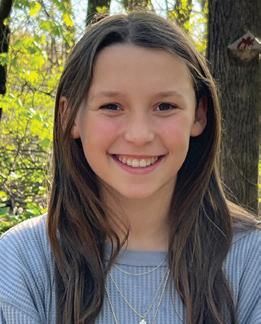
WEDNESDAYS
Fitness Fun with Zoe: 10-10:45 a.m. Online. Presented by JFCS Center for Senior Enrichment. Workout features light chair exercises with optional weights. Cost: Free. For more information, visit jfcsaz.org/cse.
Chair Yoga with Zoe: 11-11:45 a.m. Online. Presented by JFCS Center for Senior Enrichment. 45-minute chair yoga class. No prior yoga experience required. Cost: Free. For more information, visit jfcsaz.org/cse.
THURSDAYS
Memory Cafe: 10-11 a.m. first Thursday; 1-2 p.m. third Thursday. Online. Presented by Jewish Family & Children’s Service. Program for those with changes in their thinking or memory, mild cognitive impairment due to Alzheimer’s disease or a related disorder, along with their care partners. For more information, visit jfcsaz.org/our-services/older-adult-services/ memory-cafe/.
In the Kitchen with Benita: 12:30 p.m. Join Smile on Seniors on the fourth Thursday of every month for some delicious cooking or baking fun! Cost: Free. For full details visit sosaz. org/virtual or email Rabbi Levi Levertov at levi@sosaz.org.
FRIDAYS
Welcome Shabbat: 11-11:30 a.m. Online. Celebrate Shabbat with the JFCS Virtual Center for Senior Enrichment. Each week a different guest host will lead the program with song and celebration. Cost: Free. For more information, visit jfcsaz.org/cse.
Sit or Stand Ballet Class: 12-12:45 p.m. Online. Presented by JFCS Center for Senior Enrichment. Jennifer Cafarella Betts and Friends from Ballet Theatre of Phoenix teach this class. Grab a chair or you can stand next to a chair or counter. Cost: Free. For more information, visit jfcsaz.org/cse.
Musical Friday: 12:30 p.m. Online. Join Smile on Seniors on the first Friday of every month for a musical presentation. Cost: Free. For full details visit sosaz.org/virtual or email Rabbi Levi Levertov at levi@sosaz.org. JN
Amiella Yanklowitz will become a bat mitzvah on Feb. 21, 2025. She is the daughter of Rabbi Dr. Shmuly and Shoshana Yanklowitz of Scottsdale.
Amiella’s grandparents are the late Sandy Yanklowitz and Steve Yanklowitz of Phoenix; and Helene and Rabbi Kenneth Stein of Teaneck, New Jersey.
For her mitzvah project, Amiella is supporting the unsheltered, helping foster children and standing up for Israel.
Amiella enjoys flag football, basketball, music and volunteering. JN

Benjamin Lee Noonan will become a bar mitzvah on Feb. 8, 2025, at Temple Kol Ami. He is the son of Jenny and Chad Noonan of Phoenix.
Benjamin’s grandparents are Denton Simmons and the late Denise Simmons of Phoenix; and Cheryl Noonan and the late Thomas Noonan of Phoenix.
For his mitzvah project, Benjamin collected canned food and donated it to various food banks.
A student at Madison Meadows Middle School, Benjamin enjoys reading, spending time with friends and family and playing sports.JN
now
Individuals will be recognized for influencing the future of the Greater Phoenix area through their professional and personal achievements. Nominees must be 18 to 50 years of age and reside in the Valley. Judges will consider: a nominee’s professional success; community involvement; and commitment to the Jewish community. Nominees must identify as Jewish.
Make a nomination today for the 2025 class of 18 Under 50 award! Nomination deadline: 11:59 p.m. on Sunday, March 9, 2025. Any nominations received after that date cannot be considered